54 best browser games 2024 you can play for free
It’s OK, you didn’t have much to do today anyway. Did you?
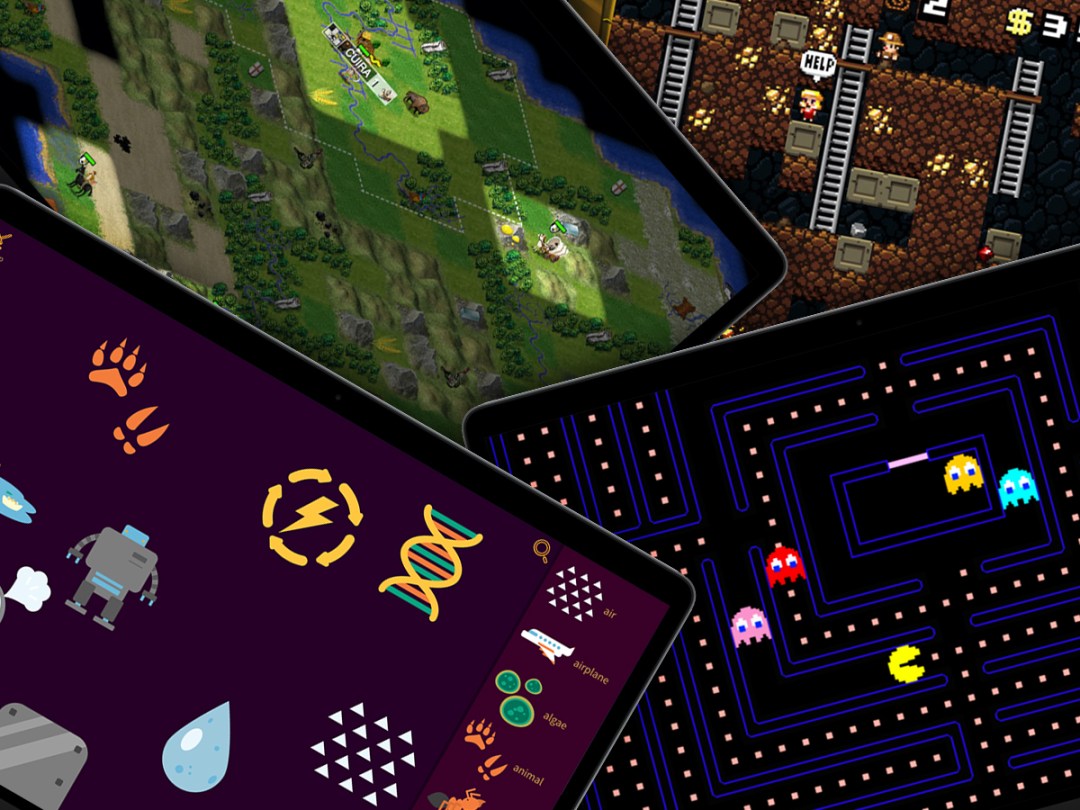
That really important thing that needs doing? Yeah, that’s not going to happen, because we’ve rounded up the best free browser games in existence – and they’re all free. You don’t need one of the best gaming laptops to run them. But you do need a good browser. Chrome’s the best bet.
Otherwise, delve in and enjoy games that are so good you’ll set fire to your Xbox and live life entirely inside a web browser. Oh, all right, they’re not quite that good, but if you can’t waste an insane number of hours playing these fab games, it must be because you hate fun itself.
Our latest best free browser game pick
Get an instant fix with the free web browser game tickling our fancy right now.
Canabalt
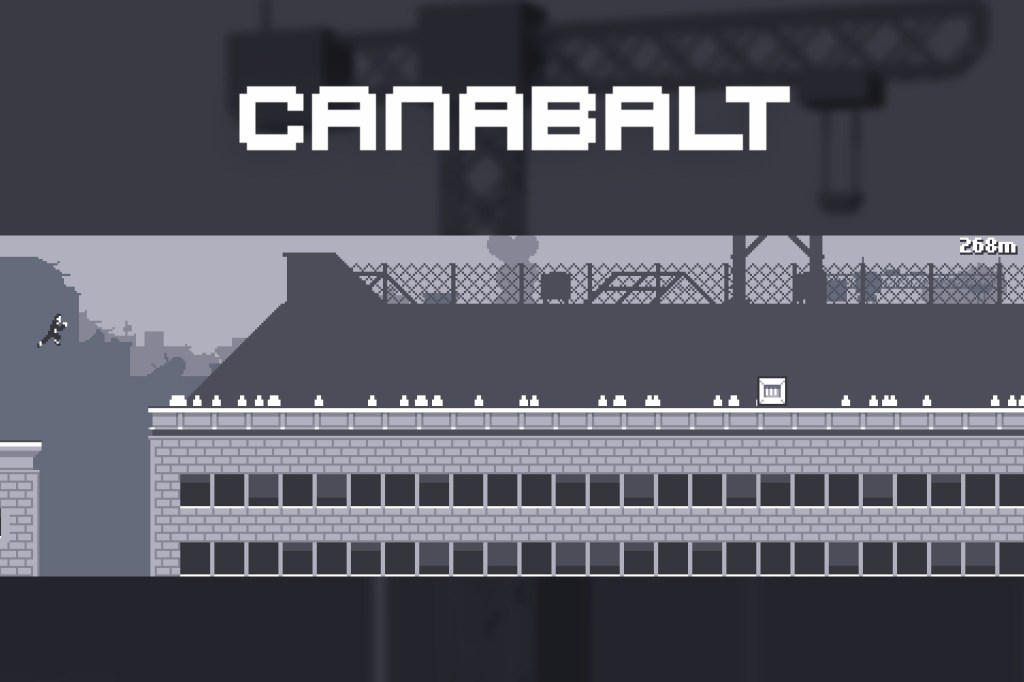
The game that spawned a sub-genre, Canabalt always had an edge subsequent endless runners lacked. Maybe it was the terrifying dystopia a lone figure is fleeing from, all grey landscapes and strange machinery stomping around in the background. Perhaps it’s the soundtrack, pumping the game full of urgency.
Mostly, it’s the speed. Canabalt moves at a fair old lick, making it an adrenaline fuelled and endlessly tense experience – right up until you smack into a wall and plummet to your death. It’s now newly spruced up for modern browsers, and yet still feels as fresh as it did back in the days of Flash.
And the rest…
Stuff’s definitive list of the very best free browser games for your PC or Mac (and, in many cases, mobile device), whether you fancy smashing your brains out with puzzles, taking over virtual worlds, or digging into retro-infused arcade action.
8-Bit Symphonoid
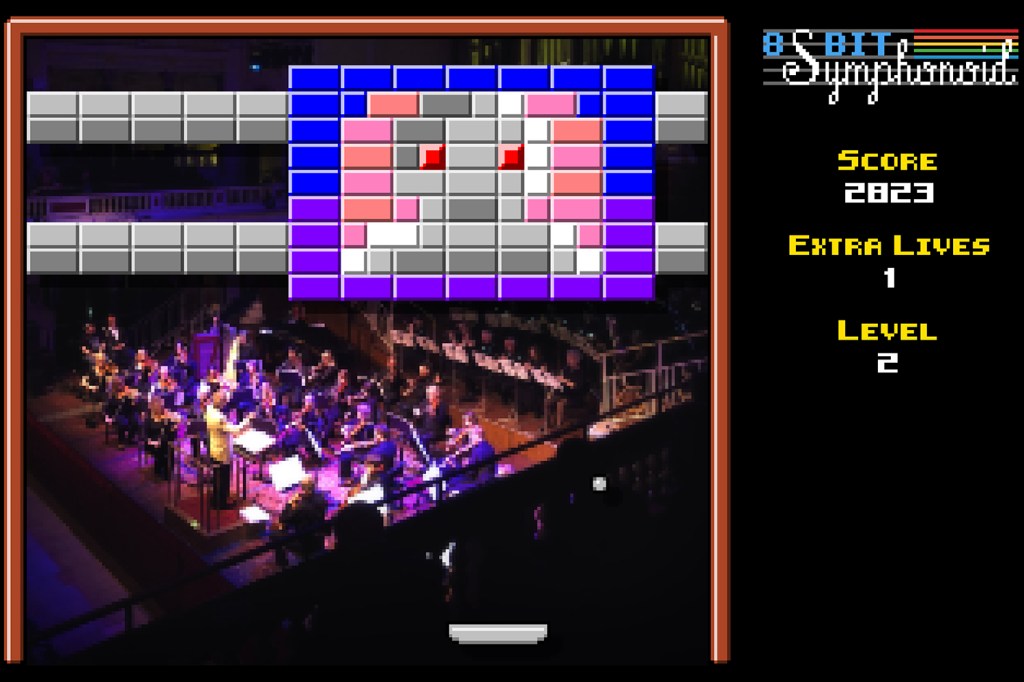
This brick breaker contains multiple levels of retro. The gameplay riffs off Arkanoid, itself an evolution of the ancient Breakout, which had you use a bat to smash bricks dotted about. These are set in patterns that themselves nod to other retro games.
As you play, your ears are serenaded by snippets from 8-Bit Symphony, albums that ambitiously recreate classic game music for a modern-day orchestra. A tasty retro treat, then, albeit with a sting in its tail when you quickly discover how many of the ‘bonus’ capsules do horrible things to your bat or ball rather than powering them up. But then the rock-hard difficulty level feels perfectly retro too.
Note: this one takes a short while to load, so be a bit patient!
A Dark Room
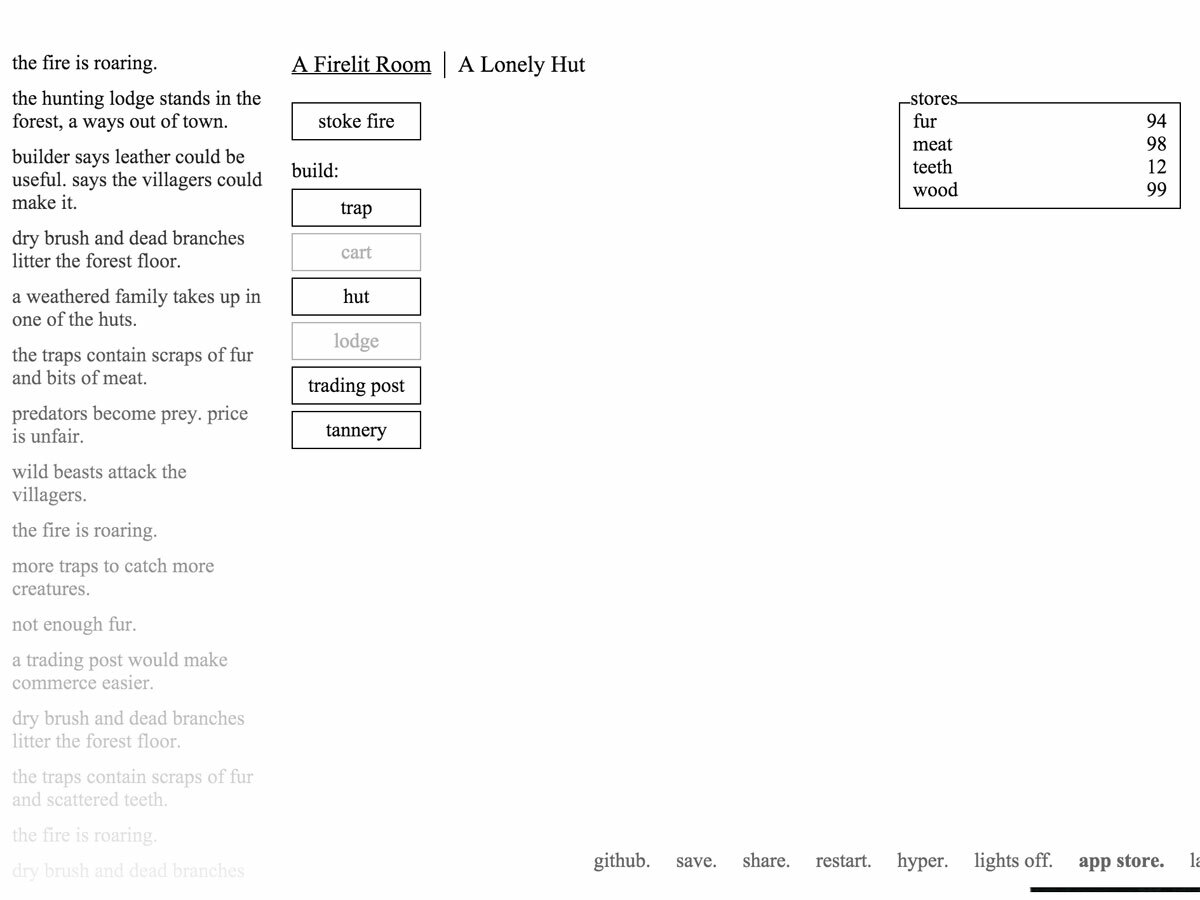
Coming from the same developer as Gridland (also in this list) and supplying a similar ‘thrive ‘n’ survive’ challenge, A Dark Room nevertheless takes a very different tack. It’s a text- and menu-driven adventure in which you build up and maintain a successful community in a harsh wilderness. Logistics and supply management are as important as surviving animal attacks, and the adventure can be long and gruelling. Fortunately, you can save progress in your browser and continue at a later date.
Almost Pong

You remember Pong? Two bats. One ball. Endless frustration when both players realised how inept they were at returning said ball. Well, this game is, as its moniker suggests, ‘almost’ Pong. Instead of two players, there’s you alone. And rather than controlling the bat, you control the ball.
Space (or tap) makes the minimalist protagonist jump a bit. Over time, the bats shrink and the game speeds up. It’s like the concept behind Flappy Bird was caught in the TARDIS’s wake and hurled back to 1972, right into Atari’s lap. It’ll also wallop your ego should you arrogantly think you can keep going indefinitely.
Alter Ego

Alter Ego isn’t pretty – visually or in terms of content. This browser-based remake of an ancient PC game deals with progress through everyday life. It’s as far from The Sims as you can imagine, too – instead of cute little idiots blundering about, you get stark icons and multiple-choice text.
But there’s depth, with a clever (if admittedly slightly conservative) script written by a psychologist, which offers branching progress that could lead you to a happy old age or abruptly dying as a toddler, having necked some bleach found under the sink.
Alter Ego
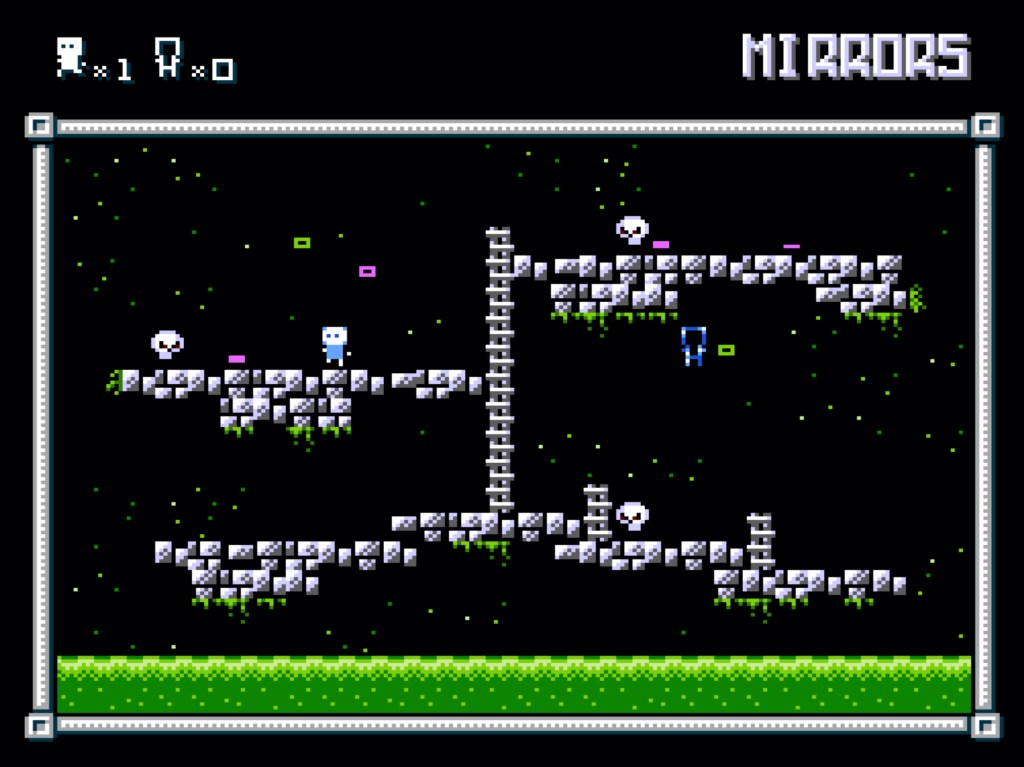
Not to be confused with the other – and much older – Alter Ego game you probably just read about, this Alter Ego is a platform puzzler. You dart about single-screen set-ups featuring platforms and ladders, avoiding enemies and scooping up gems. Only things aren’t that simple, because your every move is being mirrored by a phantom twin.
Fortunately, said twin isn’t evil nor out to get you – it helps you escape enemies and grab out-of-reach gems, by way of limited swaps you can perform. The mix of genres keeps you on your toes: you’ll need brainpower and fast reactions to have a ghost of a chance of winning.
Old school cool: webRcade
Alter Ego is part of webRcade, an online emulation system. You’ll find the game in the NES section and can control it with the arrow keys, Z and Return/Enter. Do explore webRcade further, though – it has loads of homebrew goodies for classic systems. You can also add your own games by way of custom feeds.
Boulder Dash
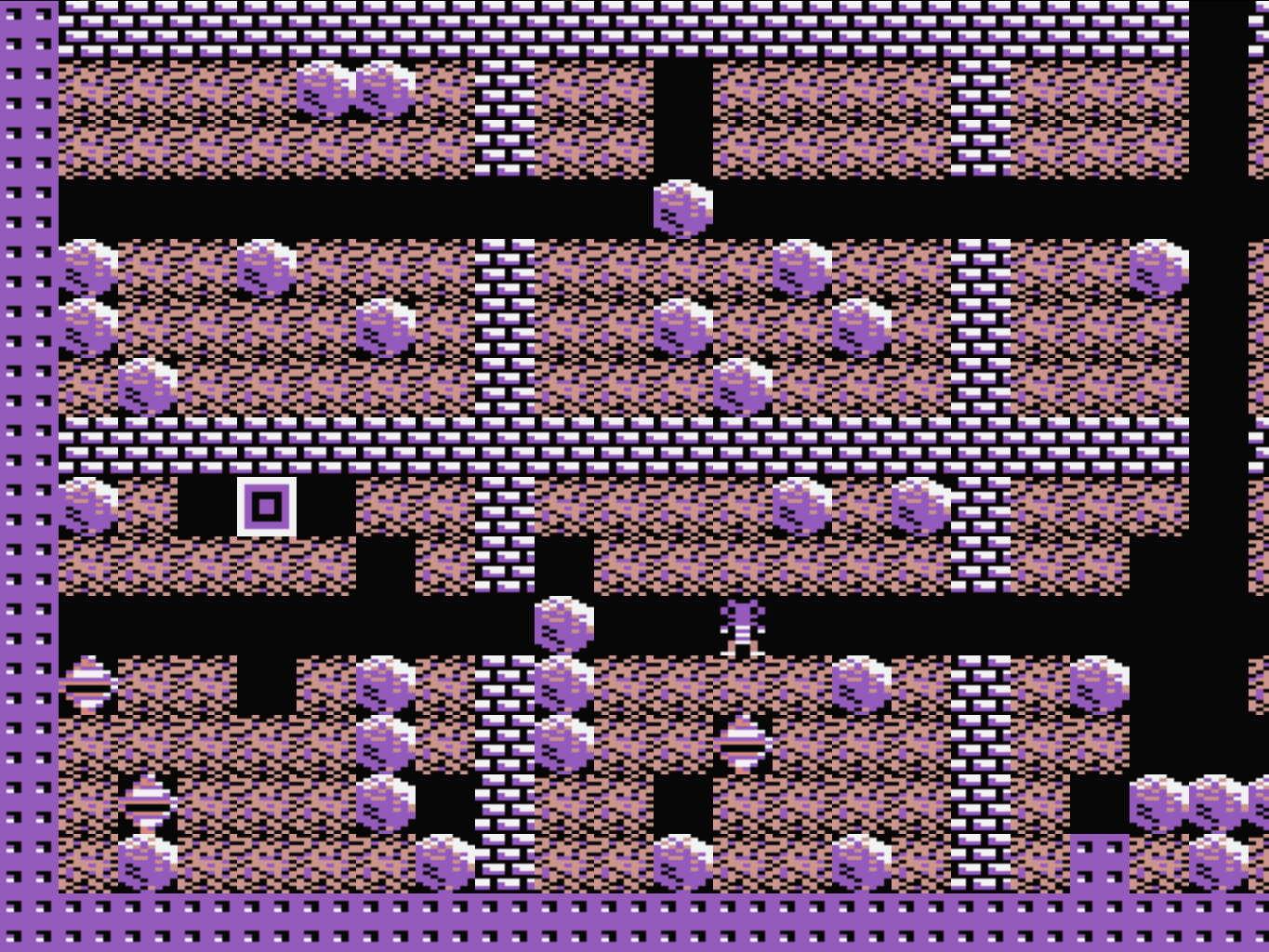
This official online remake of a 1980s 8-bit classic finds Rockford digging through dirt, grabbing diamonds, and trying to avoid getting crushed by the titular boulders or blown up by explosive underground wildlife.
It looks crude, but the mix of puzzling and arcade action remains highly compelling. It’s not quite a one-to-one conversion – some cave speeds are off, for example, but it scratches a particular retro itch when you’ve a few minutes to spare, and are many miles away from a Commodore 64.
Candy Box 2
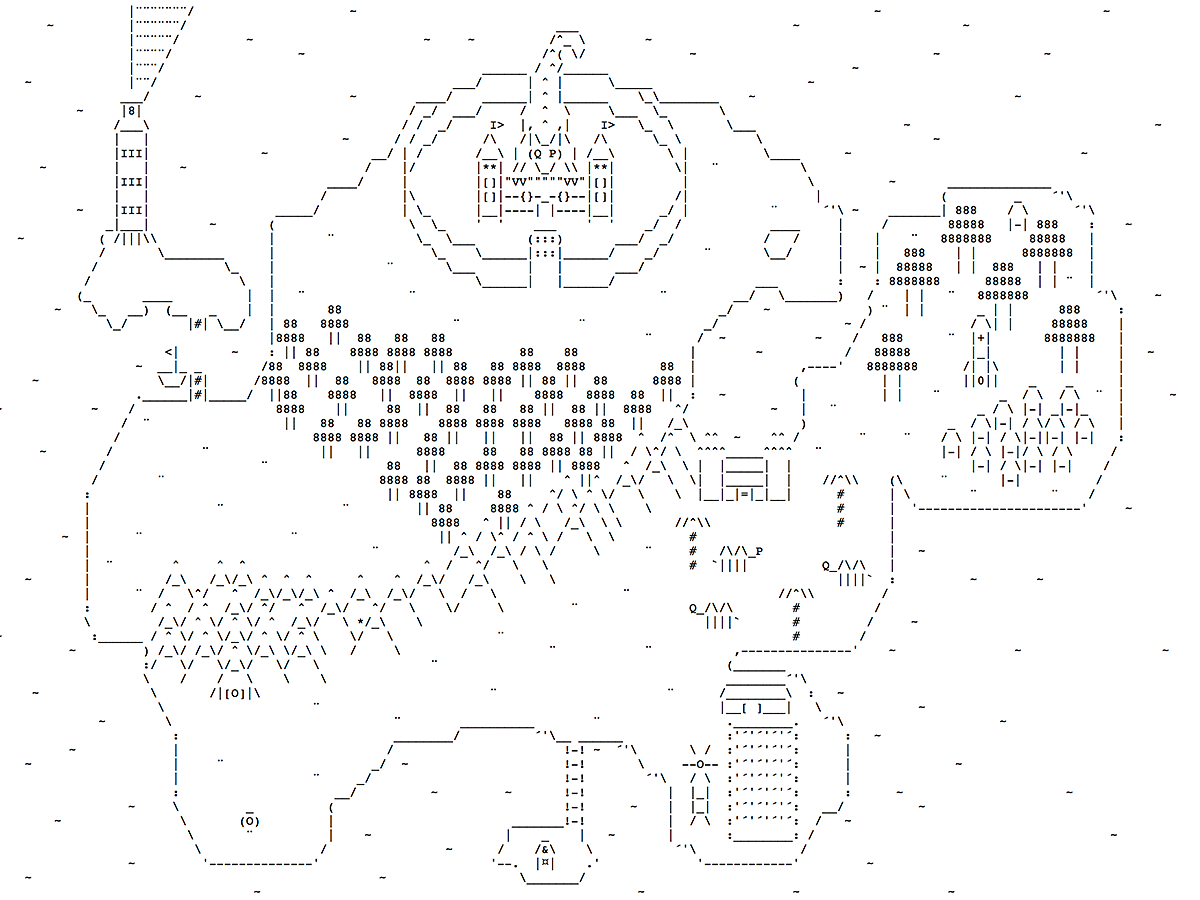
The beginning of Candy Box 2 is as minimal as can be. A candy counter ticks upwards, and you can eat all your candies, or lob some to the ground. But amass enough sugary treats and Candy Box 2 rapidly goes a bit weird.
What started out resembling a pointless clicker transforms into an oddball RPG. You ‘buy’ a status bar, and then some weapons, before scouring a village and beyond, embarking on epic quests where you get all stabby with an ASCII sword. Because that’s the final bit of bonkers: Candy Box 2 looks like it’s beamed in from a Commodore PET – and it’s glorious.
Car Boot Carnage
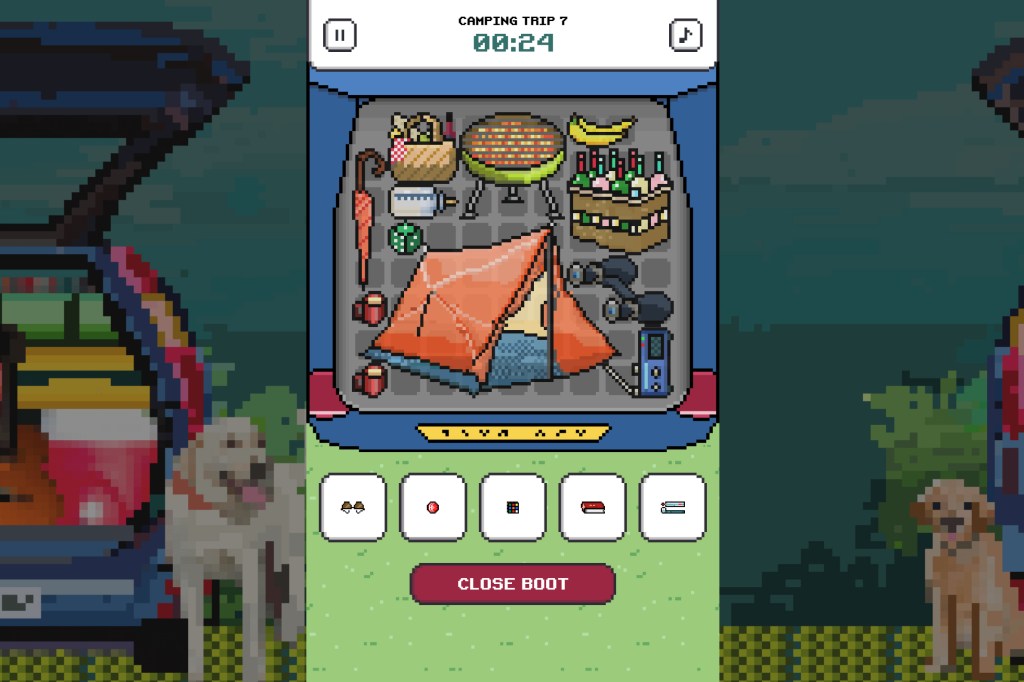
If you can’t get enough of the sheer panic of cramming things into the back of your car before heading off on holiday, seek help. But we have to say, the concept does make for an excellent game.
Car Boot Carnage is essentially tetrominos, albeit with a wider variety of pieces – several of which are essentials that have to go in before you slam the boot shut.
At first, it’s easy enough with you having to deal only with smallish items. But before long you’re faced with squeezing in tents, barbecues and even (presumably not terribly happy) dogs.
Cardhoard+
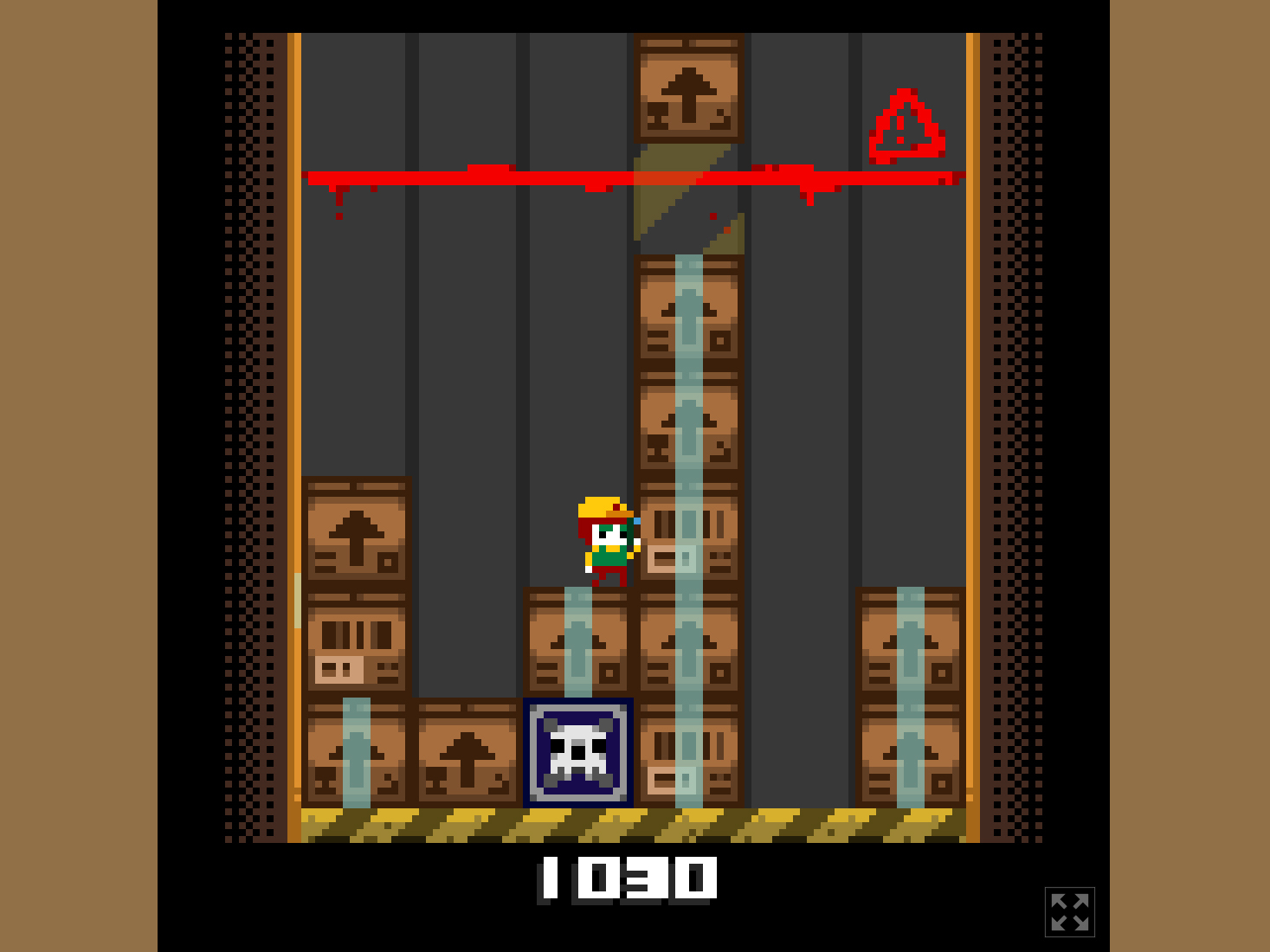
Quite possibly depicting an accurate portrayal of a worker’s plight in a gigantic warehouse, Cardhoard+ finds a summer jobber leaping about, applying packaging tape to gigantic cardboard boxes. Once taped, boxes can be stomped on, which explains the state they’re in when they show up at your door.
To keep your little worker ‘motivated’, boxes are occasionally replaced by cubes that emit deadly laser beams. And should a stack of boxes reach a line of doom, it disintegrates and is replaced by an indestructible penalty cube.
This is fast, furious, satirical fun that would have made a great Game Boy title back in the day.
Combo Pool
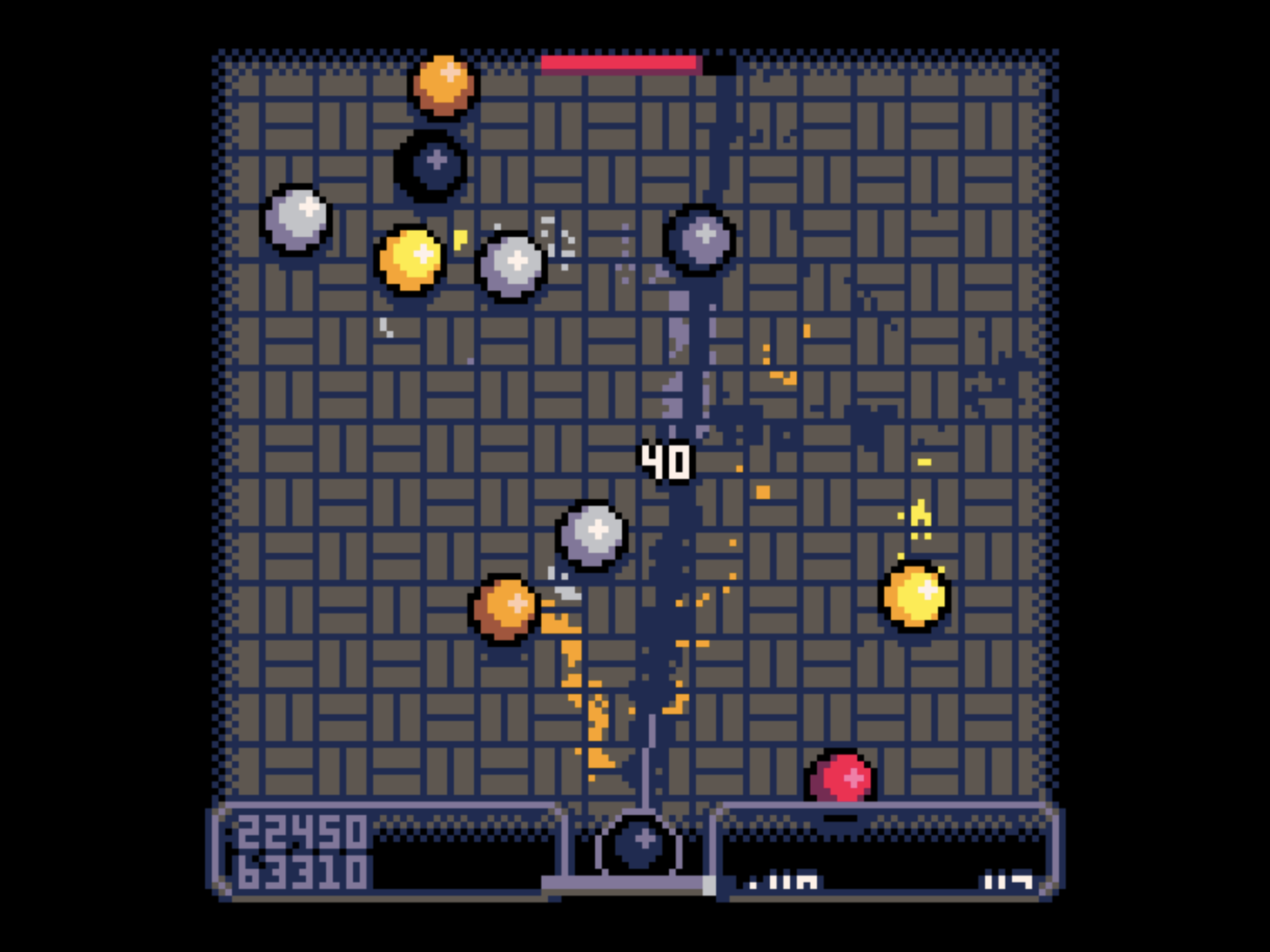
Sort of what might happen if you knocked Threes! into pool, Combo Pool finds you firing coloured balls into a tiny arena. If two match, they merge and upgrade to the next colour, until you eventually knock together a pair of explosive pink balls.
The twist is you’ve an energy bar – keep smashing balls into the arena without combining them and your life quickly runs dry. One for wannabe trick shot masters, then, not least because rebounds considerably ramp up your score.
Cookie Clicker
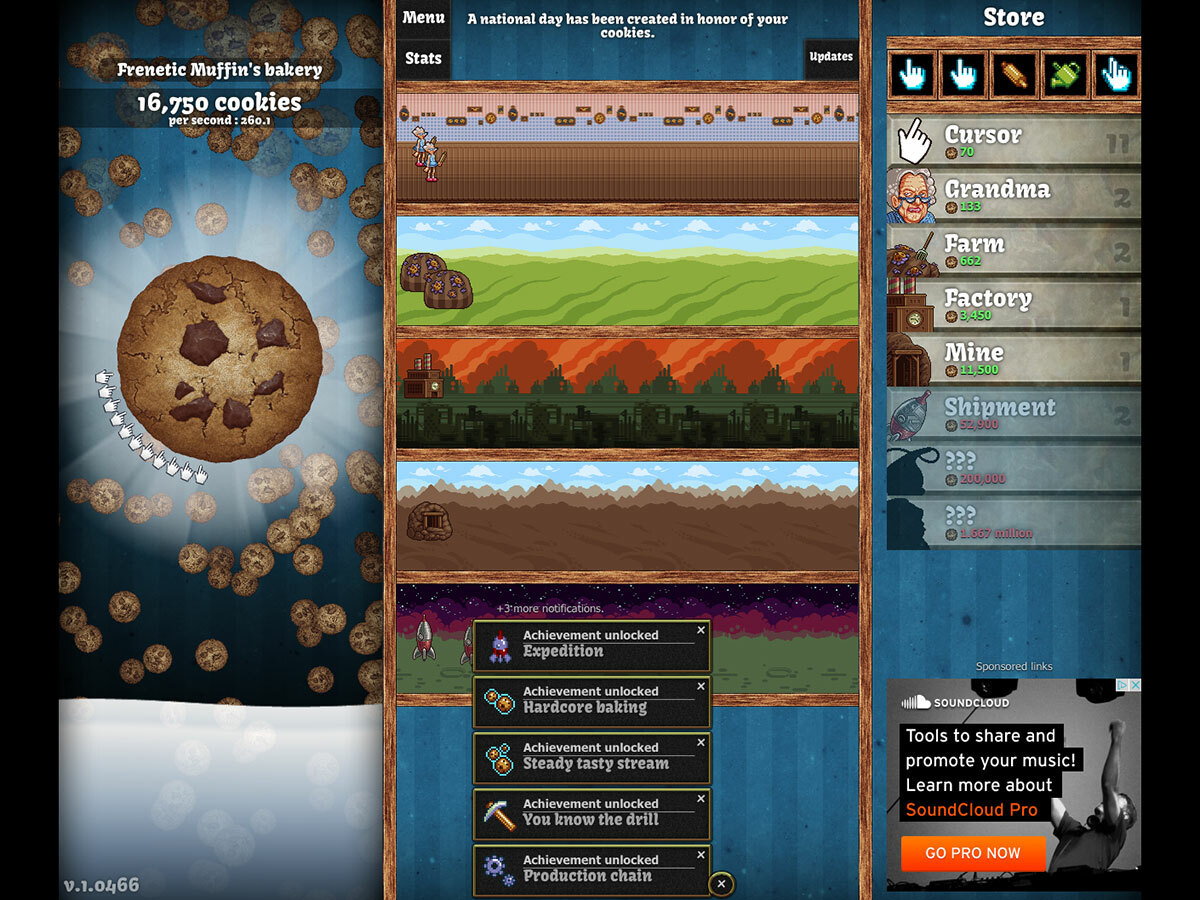
It’s hard to know what to make of Cookie Clicker. On one hand, it’s essentially a Skinner box, rewarding players with nothing in particular in return for them clicking like crazy. But it also appears to be an amusing satire on the state of modern ‘idle’ gaming.
Initially, you click and you get a cookie. The more cookies you have, the more power-ups you can afford, including cursors that click on your behalf. Eventually, you’re using time machines to bring cookies from the past, “before they were even eaten”, and converting raw light into cookies with giant prisms, to bring in millions of cookies per second. To what end? Stuff’s not sure, but currently has 509 billion cookies in a really big plastic box if you fancy one.
Drop Wizard Tower
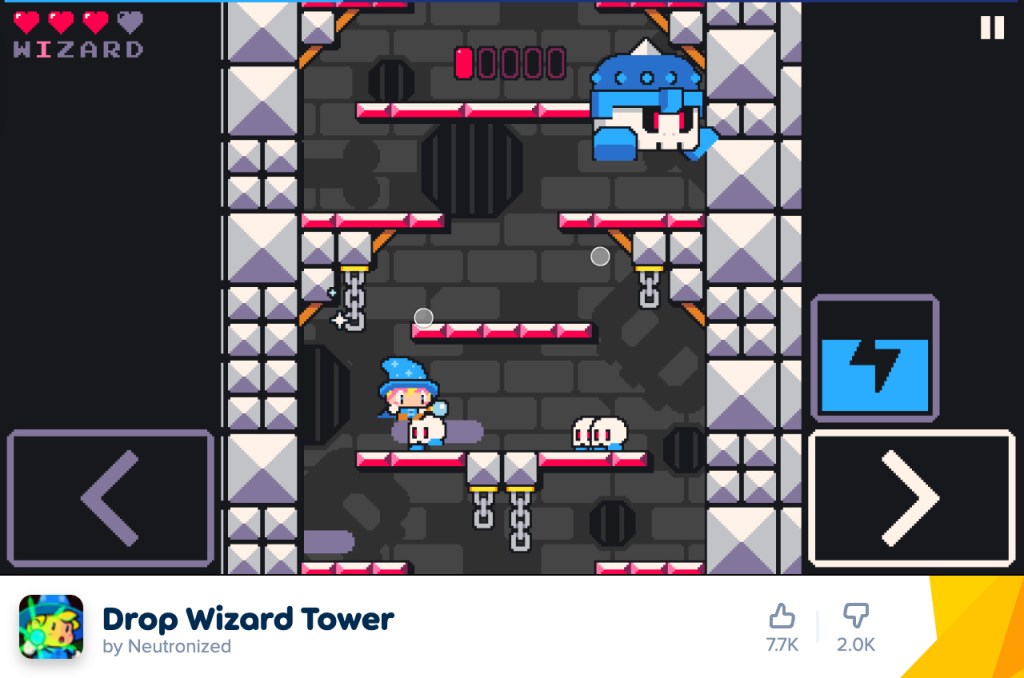
This love letter to classic single-screen platform games like Bubble Bobble, Snow Bros. and Tumblepop finds a wizard darting about, aiming to knock out foes and send them reeling with a kick.
The snag is, this wizard can’t stop. So you direct his autorunning antics by prodding the left or right arrow key, carefully timing platform touchdowns, because that’s when he emits a magic blast. Bosses and a levelling up matrix further ensure you fall under this game’s spell.
Pop stuff: Bubble Bobble
This Pico-8 Bubble Bobble demake astonishingly packs in almost everything from Taito’s 1986 arcade classic, with two leapy dinosaurs blowing bubbles to trap and blow up monsters. It’s compelling (if cosy in two-player mode) and more forgiving than the original. Just don’t complain to us when that tune lodges in your head.
Economical
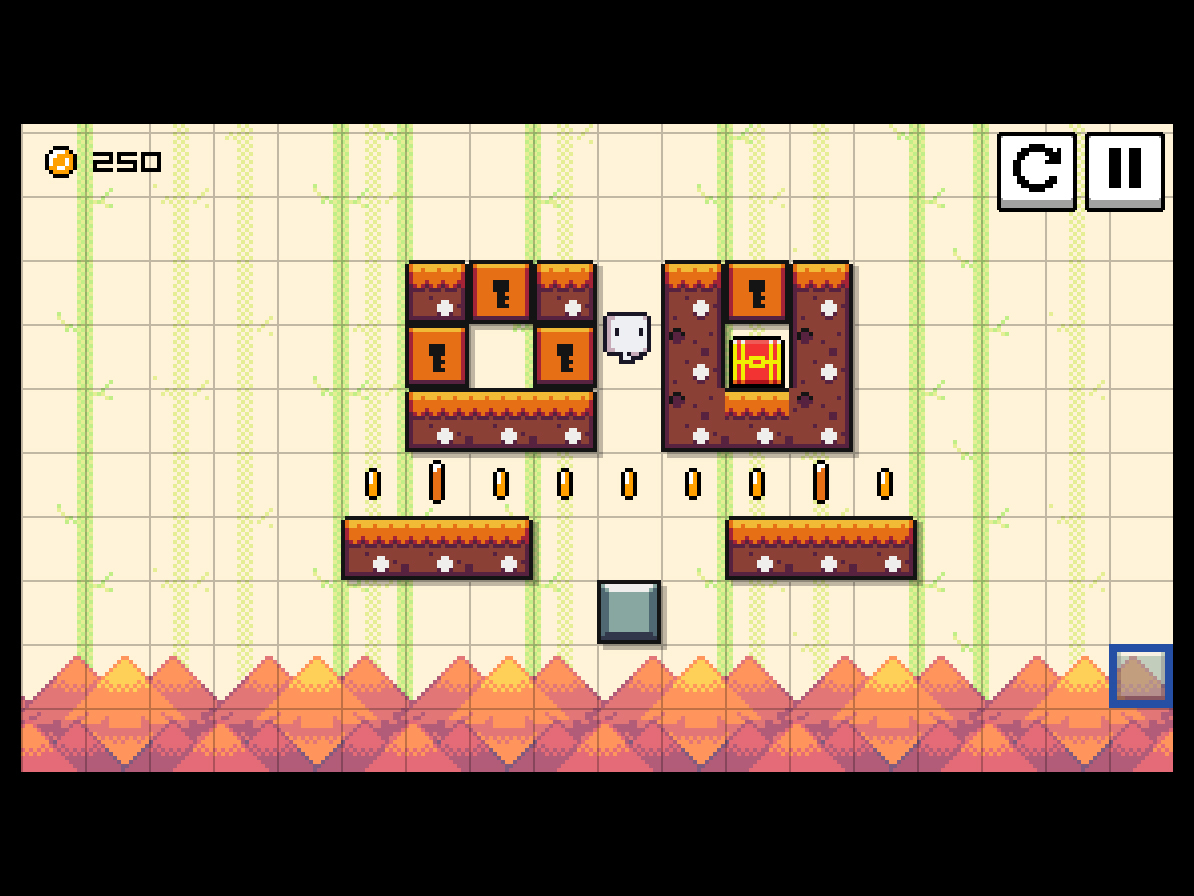
A single-screen platformer where you leap about, avoid hazards and head for an exit? Even the ZX Spectrum could handle that. But wait, because Economical has a twist: you use clicks to plant handy boxes that help you reach stuff – or block deadly spikes.
The snag is that boxes cost money. Reach your goal having splashed out too much cash and the game laughs in your face. (Actually, it doesn’t, but you don’t get gold and silver ranking awards, thereby showing you’re in fact rubbish.)
Five Words
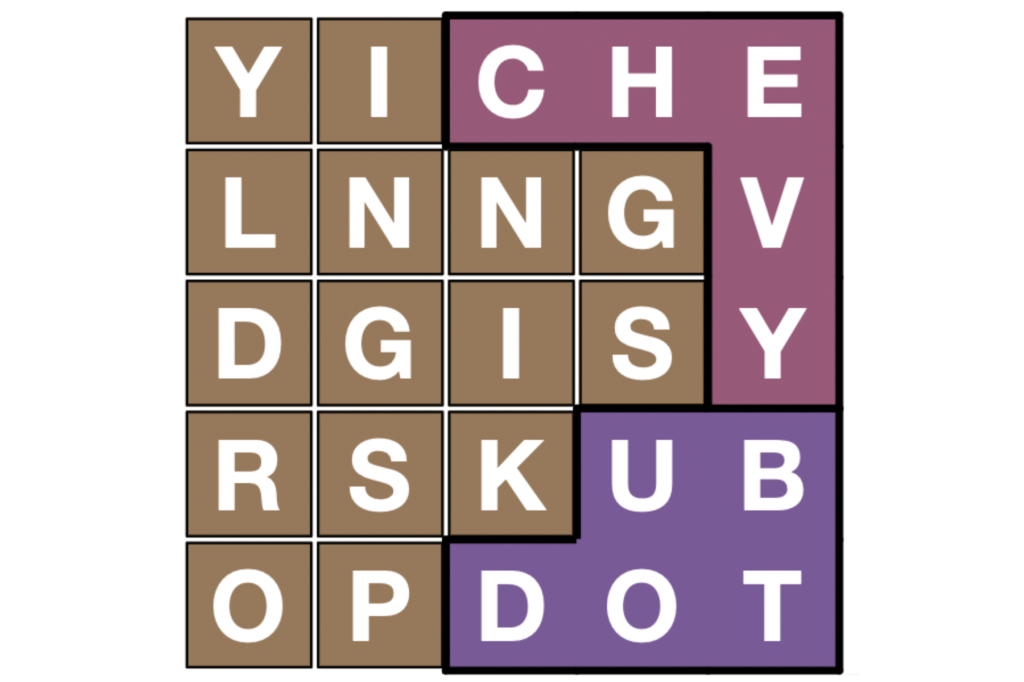
If you’re tiring of Wordle, Five Words gives you another spin on the daily word challenge. You drag out words on a five-by-five grid, end up with a load of dead ends, grumble a bit, reconfigure everything, and then feel like a genius on using every square. Until you see how long it took.
When you’re done, you needn’t go further afield either – tap or click the menu on the Foldapuz-Play website and it’ll give you access to another 11 puzzles. Just be careful they don’t take you all day, at which point you’ll be in a terrifying sleep/eat/Foldapuz loop with no end in site.
FreeCiv
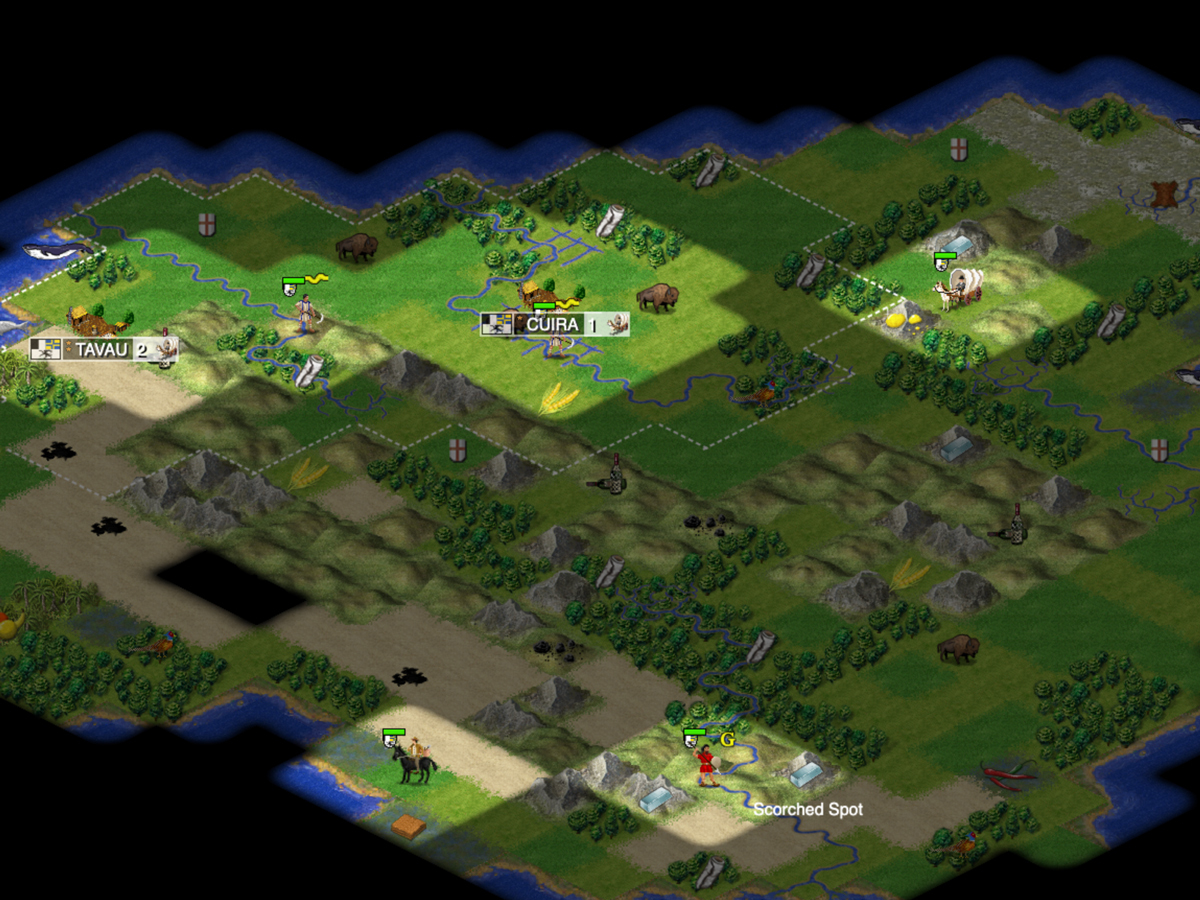
If you’ve played any incarnation of Civilization, you’ll know what a time sink it is. This online turn-based strategy title, very heavily inspired by Sid Meier’s classic game, is therefore equal parts impressive, engaging, playable and terrifying.
As ever, you start out with an explorer and some workers, searching a map and dealing with other clans (by way of diplomacy or fisticuffs). Your ultimate aim: spreading yourself across the world – ideally via domination rather than in a more literal sense with your innards.
Game of Bombs
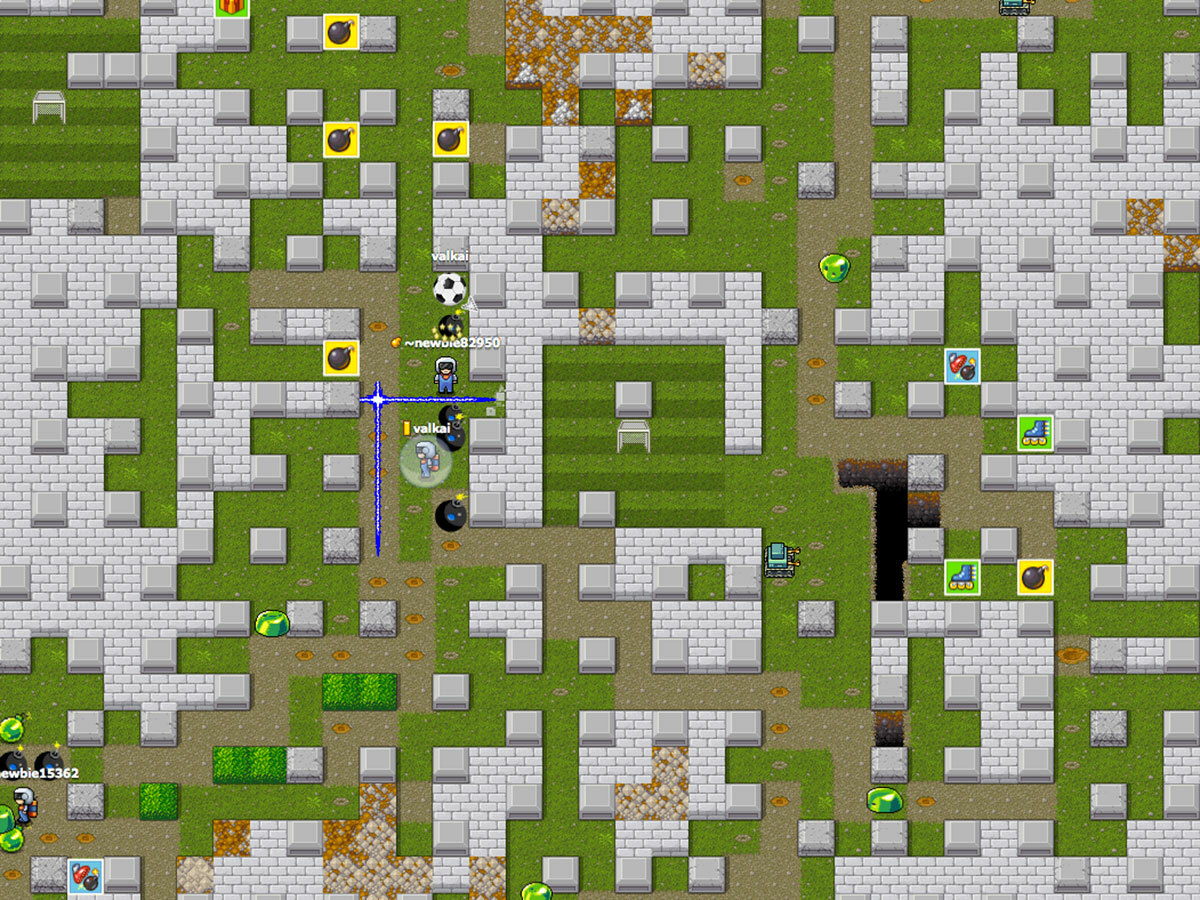
Game of Bombs transforms Bomberman into a massively multiplayer online retro arcade experience. The premise remains the same as ever: amble about, set bombs to take out walls and monsters, get away from the bombs so they don’t blow you to pieces, and collect whatever’s found in the retro carnage. The difference here is in the giant maps, and being able to bomb (or team up with) people from all over the world. And remember: if in doubt, RUN AWAY!
Gods Will Be Watching
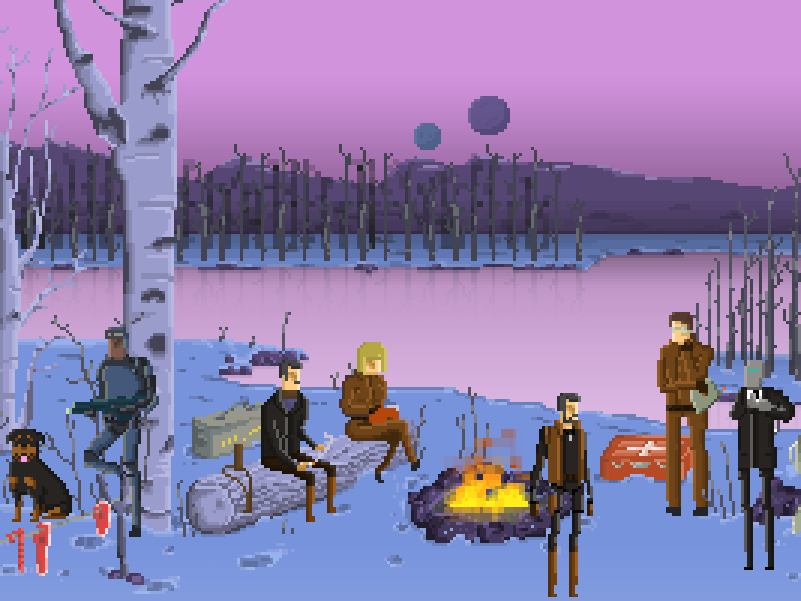
Expanded to a full game in 2014, Gods Will Be Watching’s browser incarnation is a stripped-back and decidedly bleak single-scene point-and-click survival tale. A team, on the brink of madness, is stranded, starving and cold. To make matters worse, the radio’s broken, which either means no contacting a rescue fleet or no BBC Radio 6 Music. Horrible either way. Your aim is to get everyone through 40 days, balancing all their needs (attention; sustenance; warmth; health) through your paltry amount of ‘daily’ moves.
Good Impression
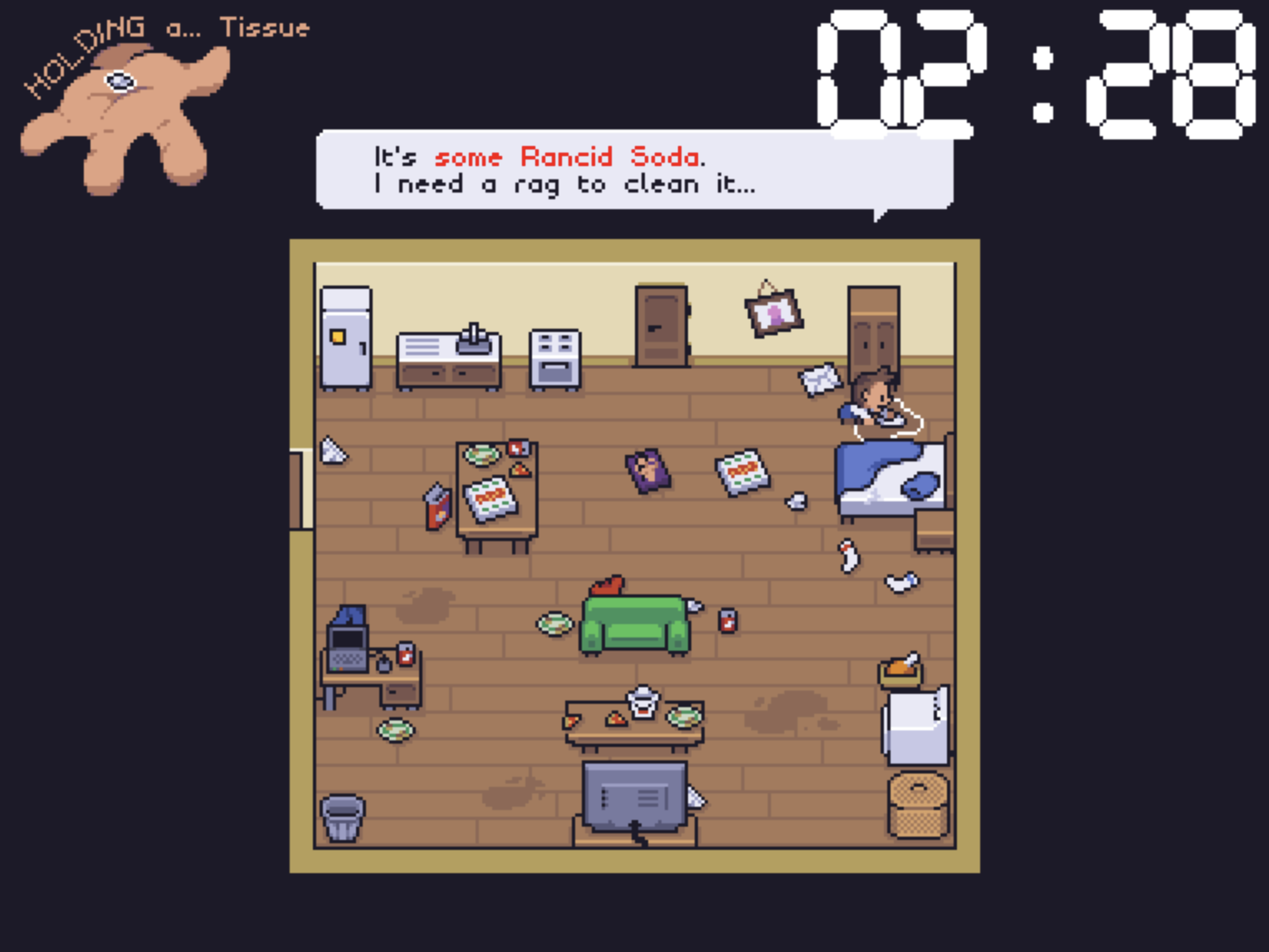
This one simulates the sheer panic clean-up that occurs when your mother shows up unannounced, and your flat appears to have had an unfortunate incident involving garbage, laundry and high explosives.
Hopefully, your own abode isn’t quite as grim as this student hovel filled with unwashed pants and bits of pizza. Regardless, you’ve three minutes to get everything shipshape.
Don’t think you can just hide everything either – this game’s mum dishes out report cards for cleanliness, and won’t stand for cold pizza in the washing machine.
Gridland
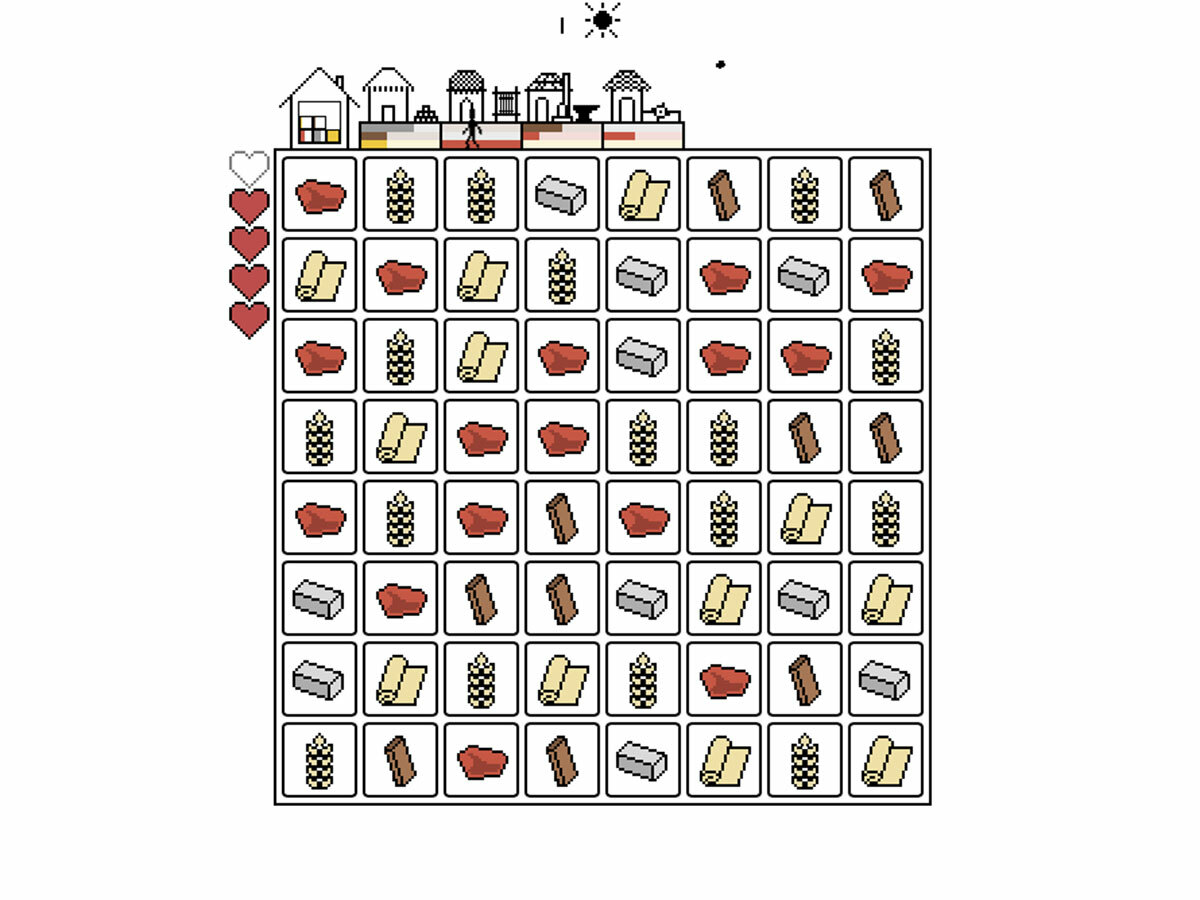
Gridland resembles a typical match-three puzzler, but is really something else entirely. However, this only becomes clear after a few failed attempts to work through day (building structures with your earnings) and then battle evil horrors in the darkness as night falls.
To say more would spoil a great game, but there is one tip to bear in mind: if you too often die, change your approach. Day and night are very different beasts.
Impossible Mission
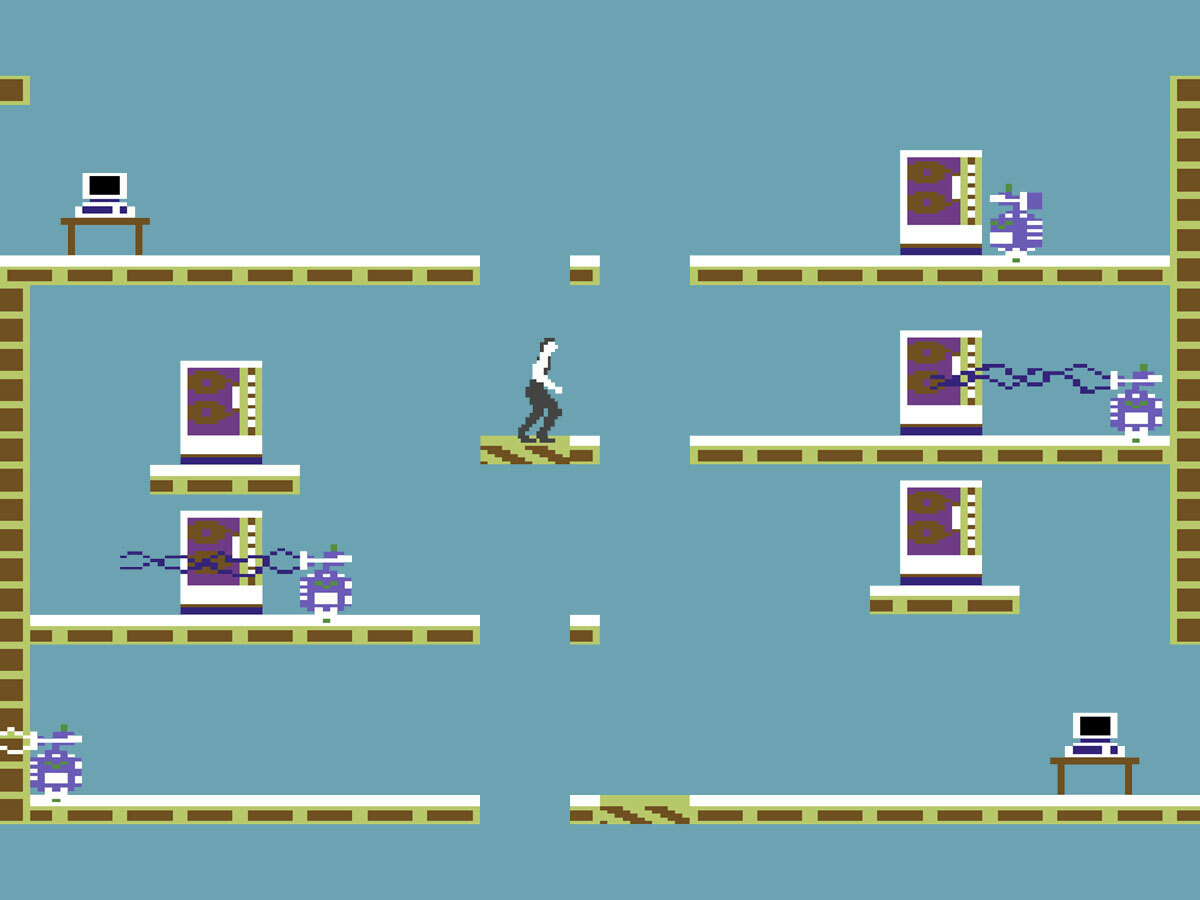
Another visitor! Stay a while! Stay FOREVARRRRR! If you once owned a C64, Professor Elvin Atombender’s deranged rant may well be burned into your brain; even if you’re a newcomer, look past the blocky graphics and you’ll find Impossible Mission is one of the best platform games around.
Your aim as a somersaulting secret agent is to search Atombender’s fortress for puzzle pieces that form a password; this is then compiled in a control room, as a means to halt armageddon. Unfortunately, the agent is a buffoon and his only defence against the deadly robots that roam the fortress’s platforms is to run away or leap over them, rather than blowing them to pieces with a really big gun.
Spec chum: Manic Miner
While less sophisticated than Impossible Mission, Manic Miner is at least as iconic, and finds Miner Willy attempting to collect objects across 20 increasingly tough single-screen stages. This is an excellent port of the ZX Spectrum original that handily lets you restart from any stage you’ve so far completed.
Invader Overload
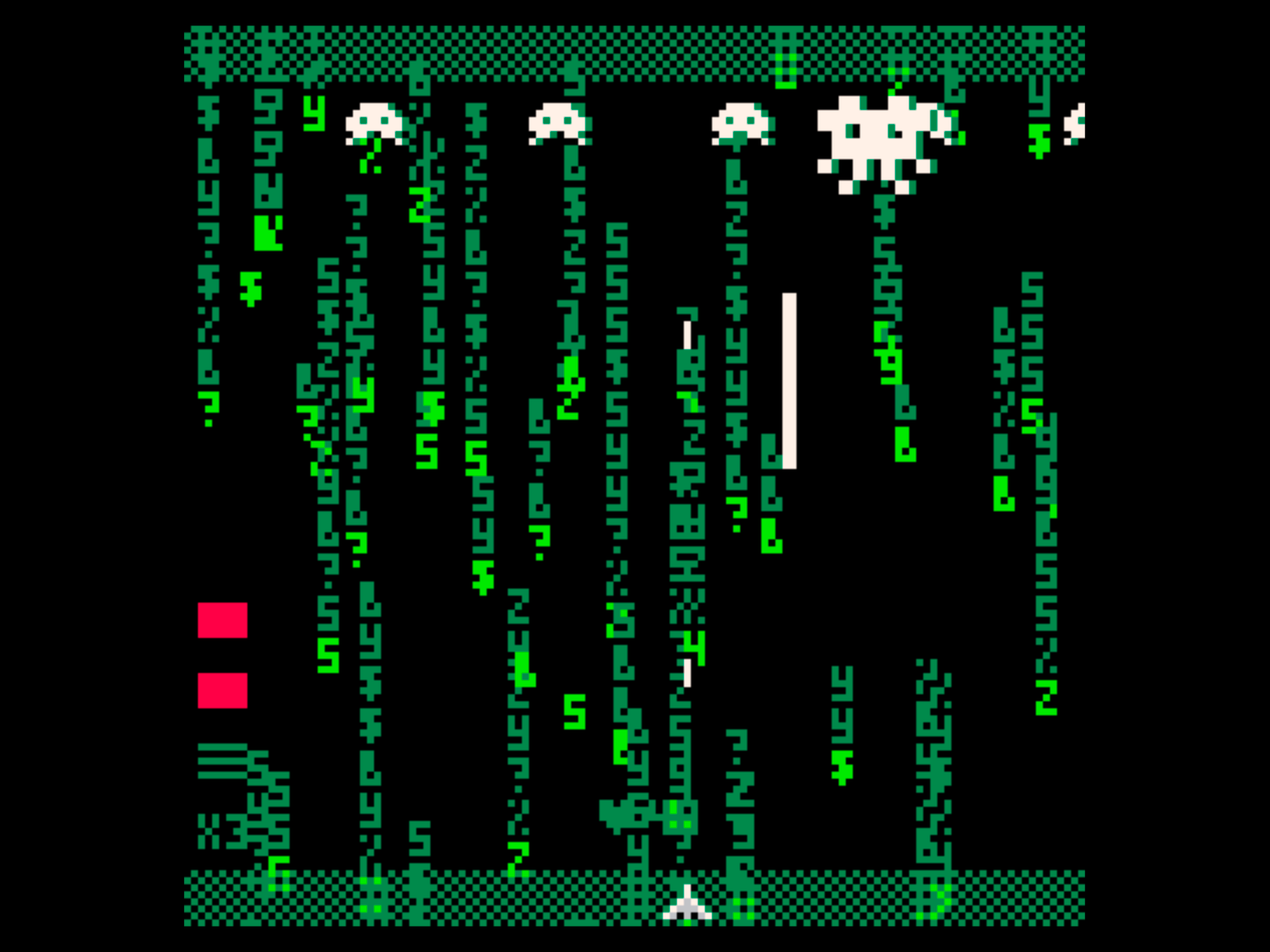
The original Space Invaders is a classic, and one of the most important videogames of all time – but it’s also really dull. Taito long ago figured out doddering aliens and sluggish bullets isn’t an exciting combination, hence ramping up the speed and chaos for Space Invaders Extreme, Space Invaders Infinity Gene, and Arkanoid vs Space Invaders.
Invader Overload riffs off of the first of those, but as if it was on a NES. It’s fast, furious, endless, and welds a basic match game to the mix – grab three coloured blocks in a row and you can unleash superweapon death on the alien scumbags. Grab enough coins and there are bosses to battle, too.
Isleward
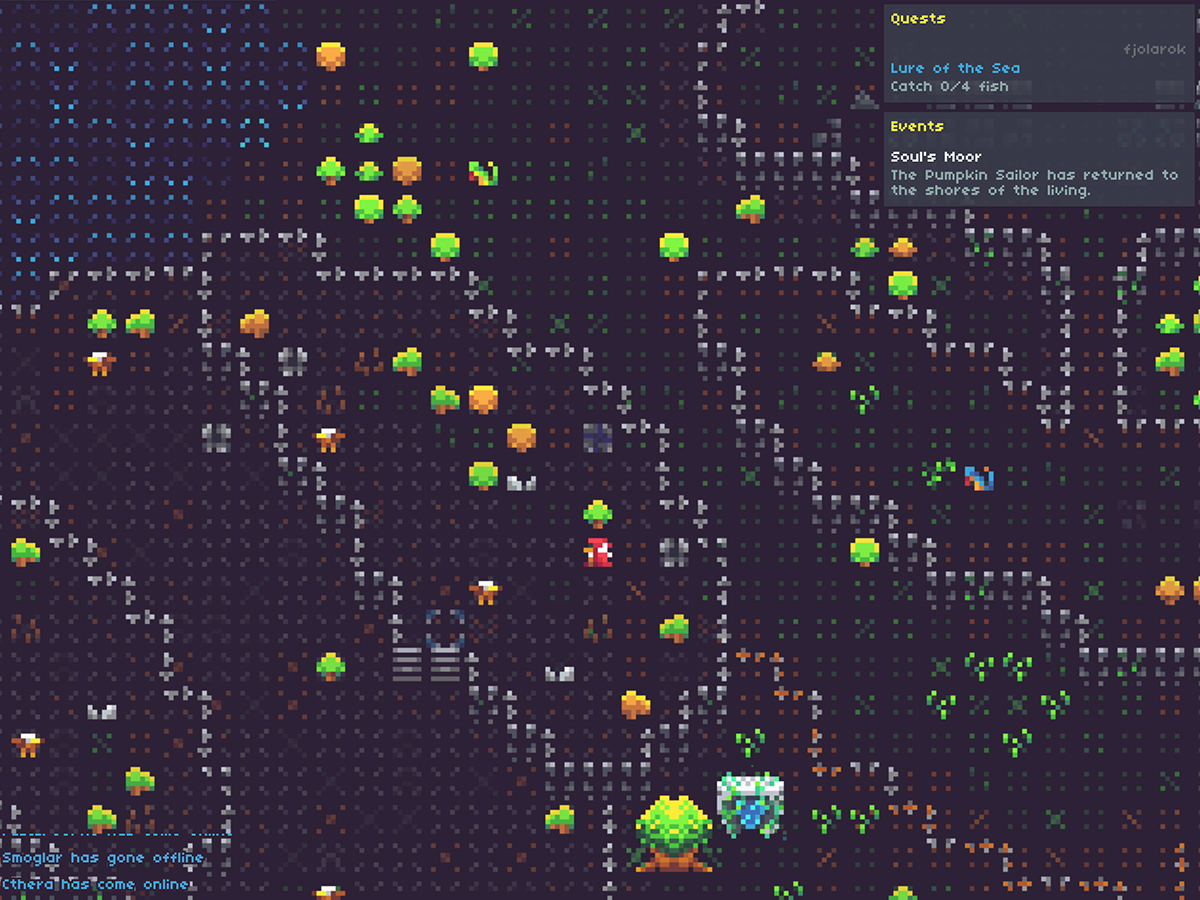
We’re in MMO Rougelike territory here, as you take a little character and tootle around a map, looking for treasure and duffing up monsters. Only, because of the MMO bit, you won’t have to do all of this alone.
Initial minutes with the game might baffle – bar a very brief intro, it just lets you poke around and figure things out. But the wiki should provide a pathway to bling, rather than finding yourself regularly – and embarrassingly – dispatched by angry bunnies.
i-Spy
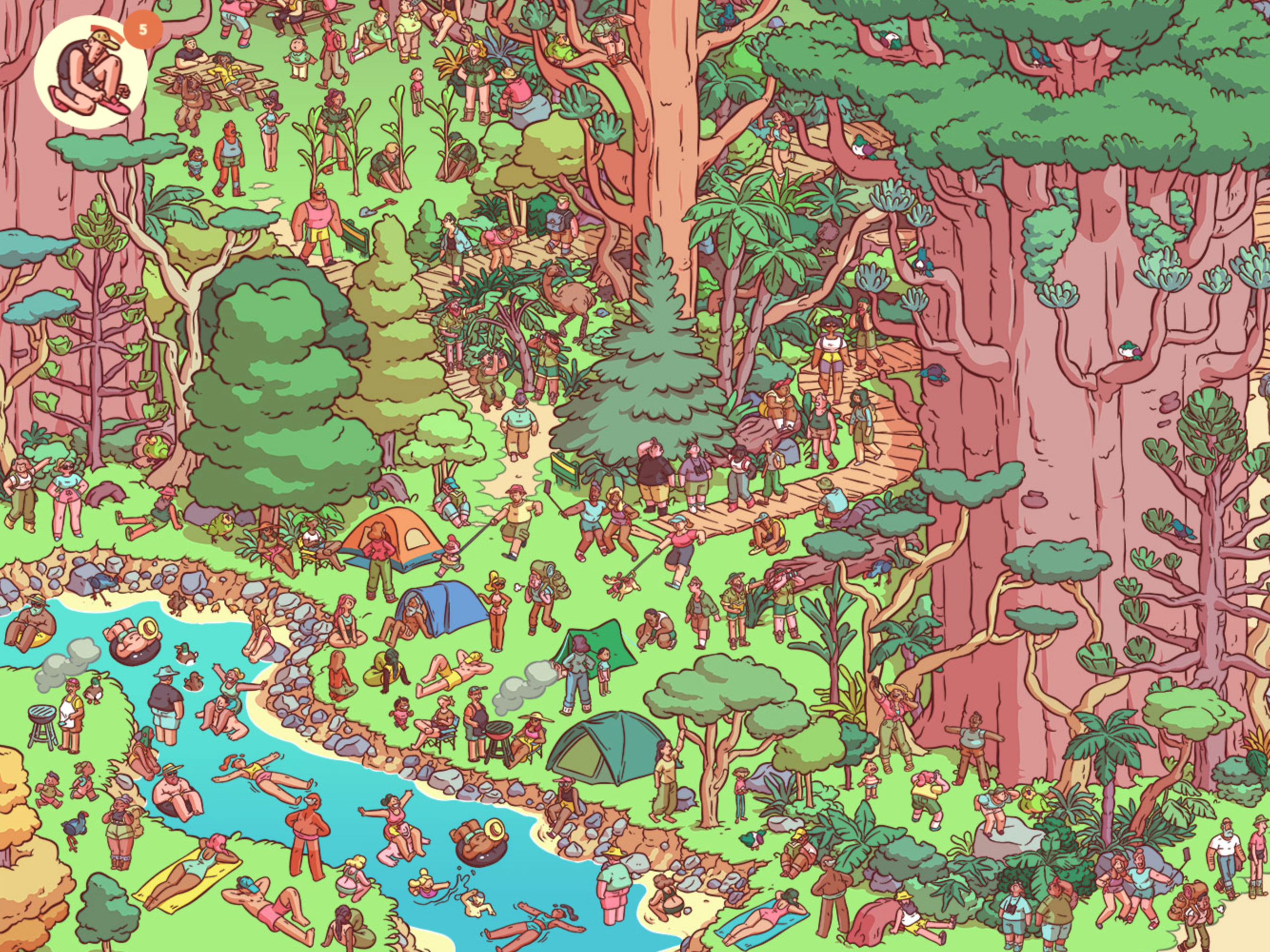
If your aim is to relax a bit rather than immerse yourself in browser-based arcade fare, i-Spy might fit the bill. It’s a straightforward finding test, where you’re tasked with finding specific characters within a detailed illustration.
There is a timer, but it’s pretty relaxed, more urging you on a bit rather than making you panic. Although you might think otherwise when the game stops asking you to search for people and instead demands you find an annoyingly tiny and surprisingly elusive fish.
LCD Games
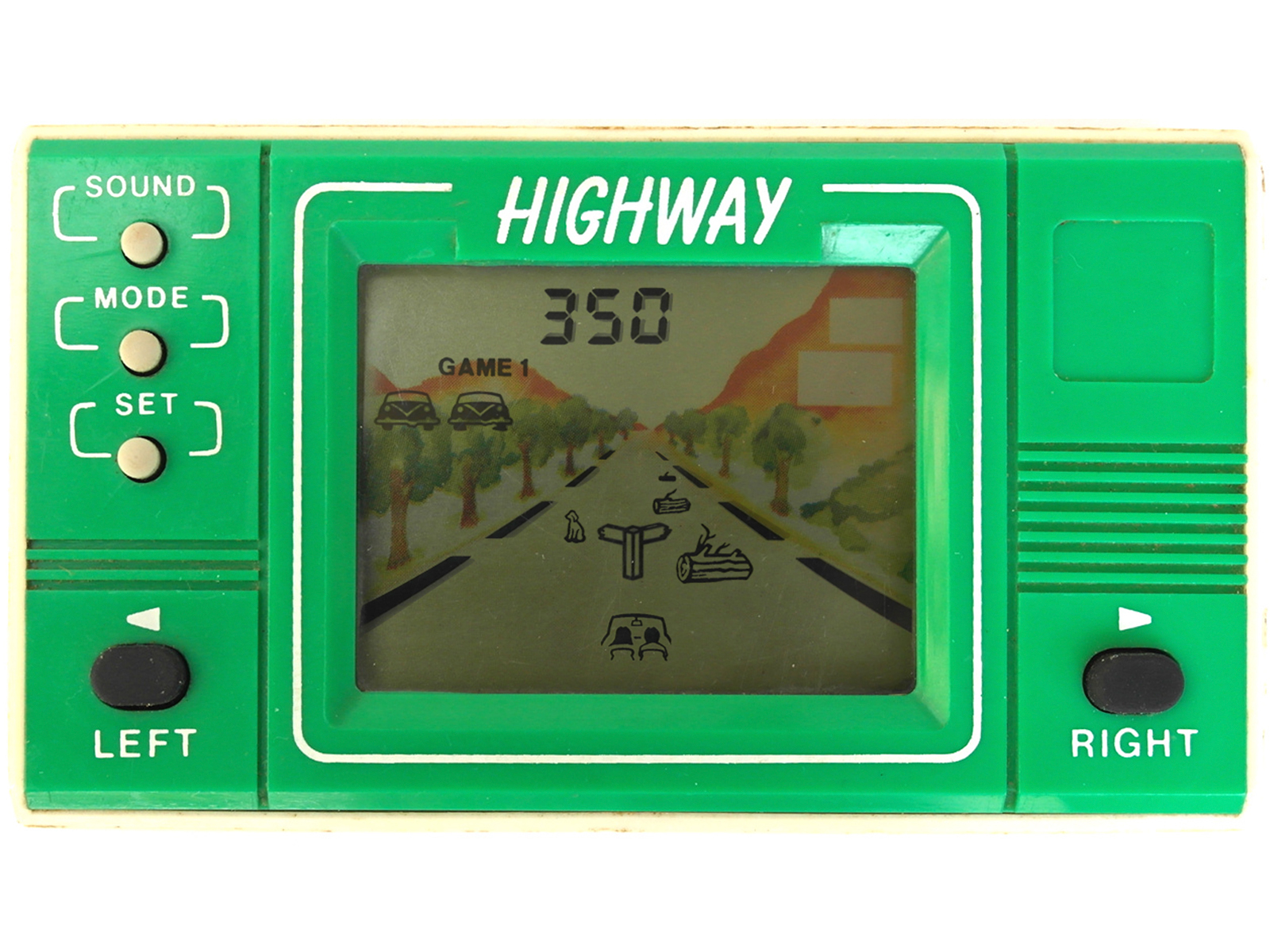
We’re cheating a bit here, because this is a website that’s painstakingly recreated a bunch of LCD games, so you can find out what handheld gaming was like before the Game Boy was even a twinkle in Nintendo’s pants.
There are some classics here as you prod keys to jerk your protagonist left and right, your eyes and reactions alike adjusting to the lack of fluid animation. The games are still pretty smart, mind.
Little Alchemy 2
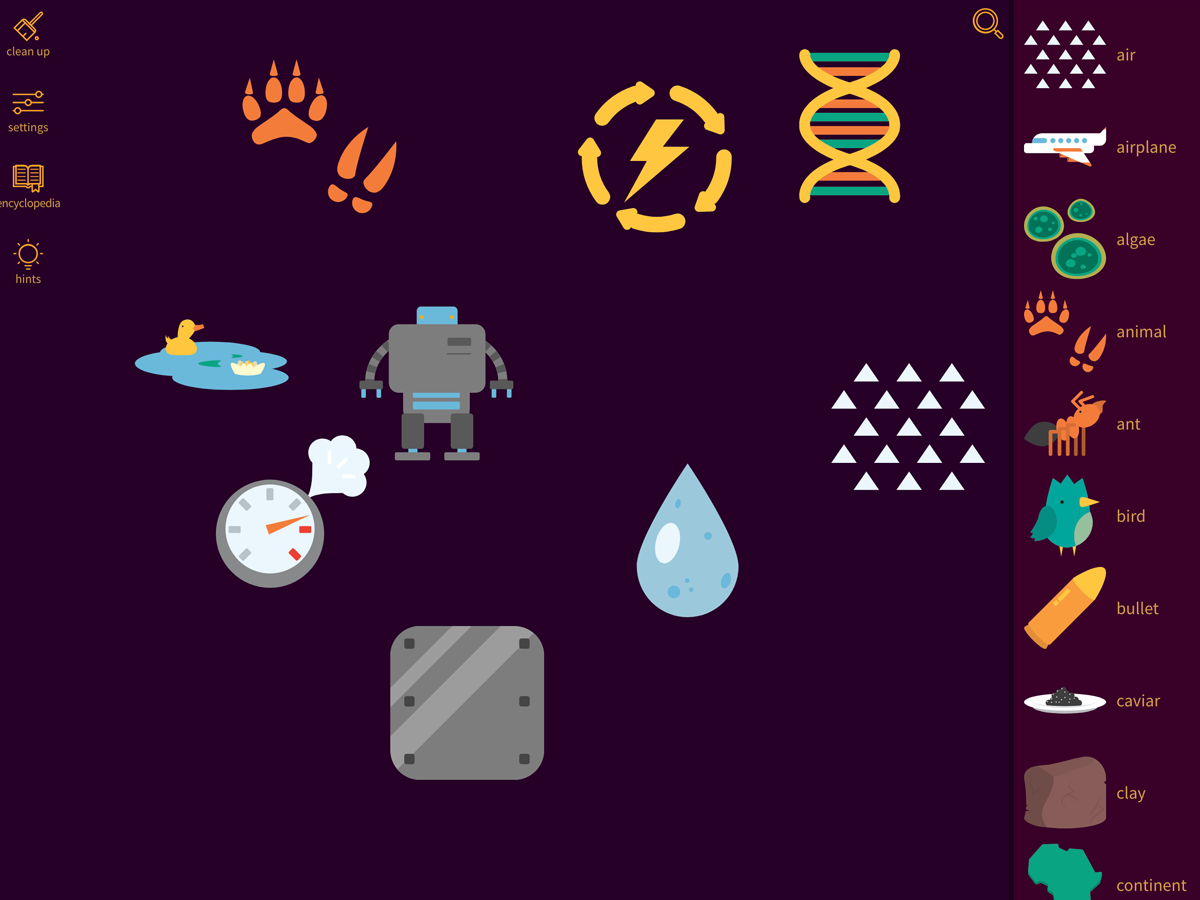
Fancy trying your hand at browser-based ‘science’? Then fire up Little Alchemy 2, which charges you with synthesising hundreds of items. You start with the bare basics (air, earth, and so on), but are soon figuring out what you might get by combining any pair for ants, caviar, a puddle and an ostrich.
This isn’t exactly Breaking Bad, then, and nor do the solutions resemble what you’d find in textbooks. Instead, the game has you think laterally, whimsically, or even surreally, to find combinations. A plane, for example, is a metal bird. Obvious, when you think about it…
Mackerelmedia Fish
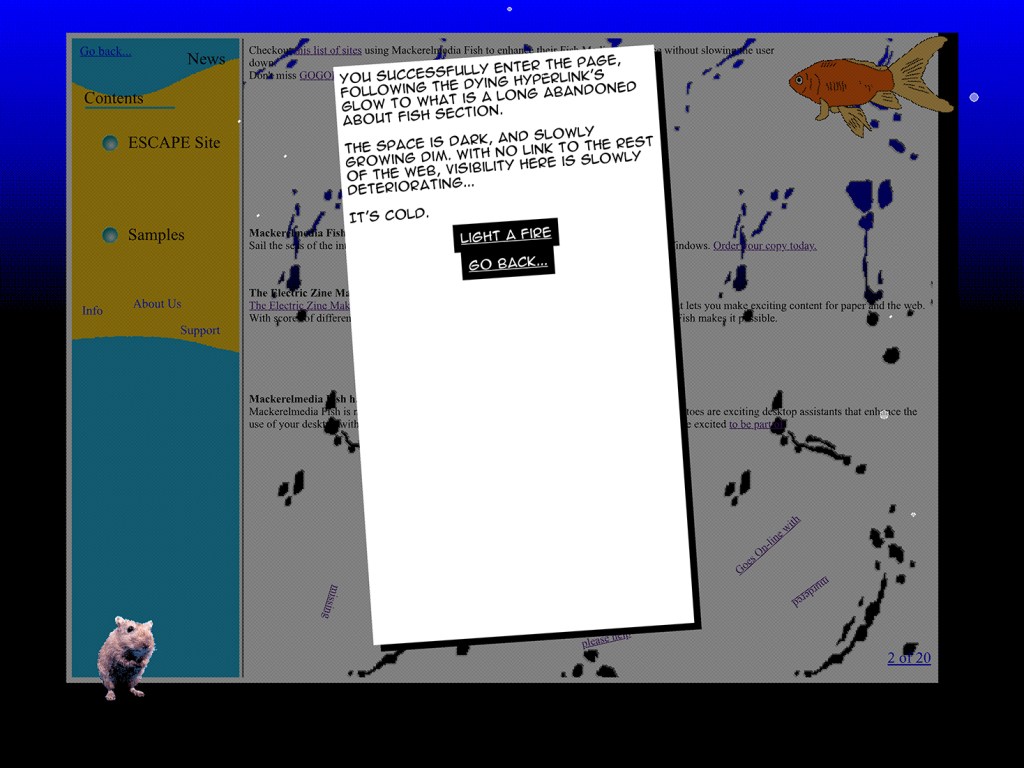
Remember when Macromedia Flash ruled the internet? This game doesn’t, insisting the web was primarily powered by Mackerelmedia Fish. And if you think that’s taking the piscine, we’ve barely skimmed the surface of its oddball depths.
What Nathalie Lawhead’s created here is a deranged narrative game that harks back to the days of lurid websites while riffing on the transient nature of online homes. On the plus side, there’s a link-munching rodent, whose cute little face balances the darker story about the ongoing loss of digital history.
Mobs Inc
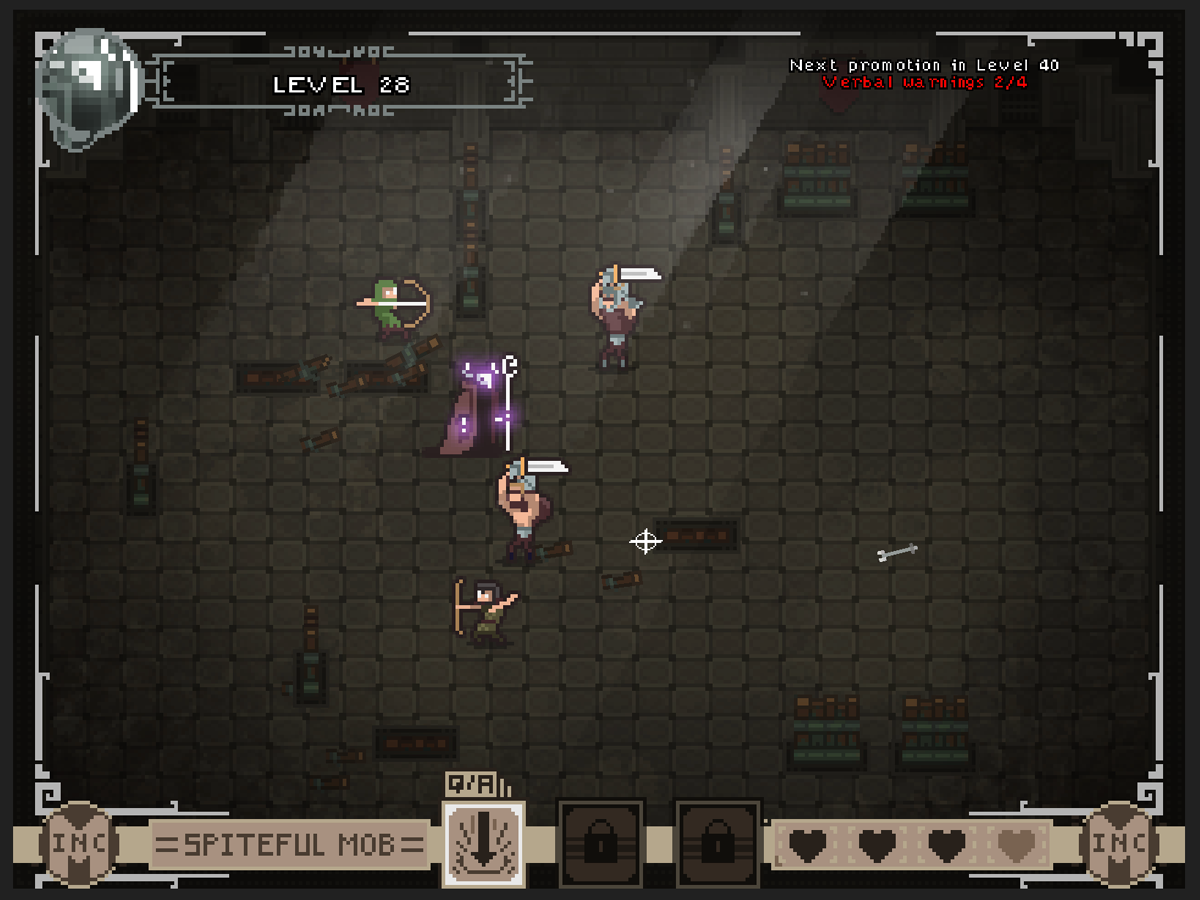
When muscle-bound hunks and dapper wizards blaze their way through dungeons, no-one thinks of the minions – but providing a challenge to adventurers is a full-time job. More specifically, it’s your job.
In Mobs, Inc., there are loads of do-gooder sword-wielding nutters about, and you must kill them all, using your mouse to direct your movement, and a click to satisfyingly slice them in two.
Do well and you’re promoted, which means more work – but armed with spells. Die and you get a ticking off from the boss, before being hurled back into the fray. Get killed four times, and you’re fired. Given that your boss seems to be a massive demon, we shudder to think what that means.
Monolith
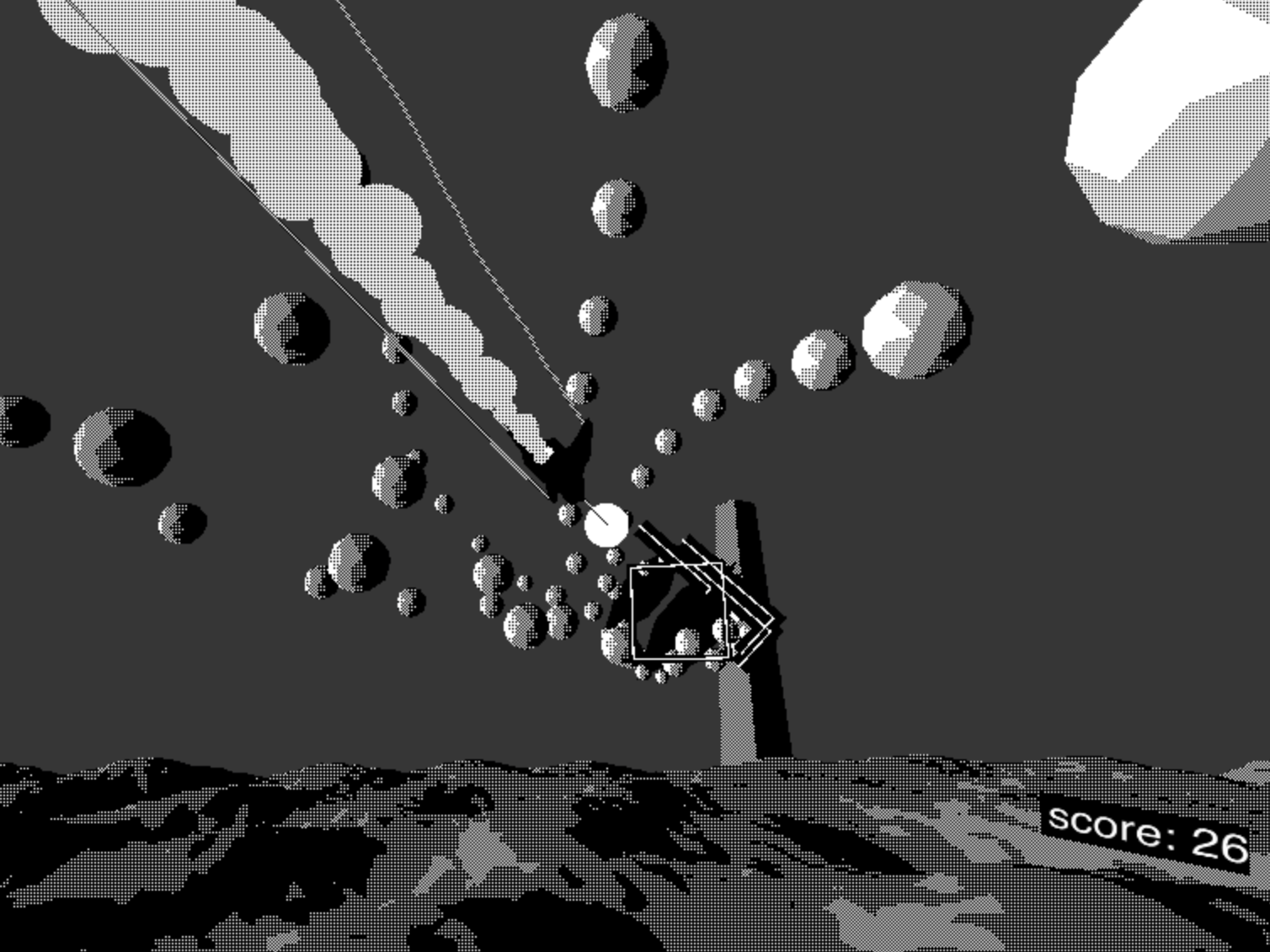
This stylish greyscale shooter finds your ship zooming towards a monolith on the horizon that suspiciously never seems to get any nearer. (Games, eh?) Naturally, said monolith is heavily armed.
You can shoot back, but only after your rubbish missile system has locked on. So begins a ‘hyperkinetic’ game of bullet hell patterns, cunning feints, and locking on to enemies to unleash explosive missile death. (All, in each case, for one miserly point. Bah.)
One Tap Quest
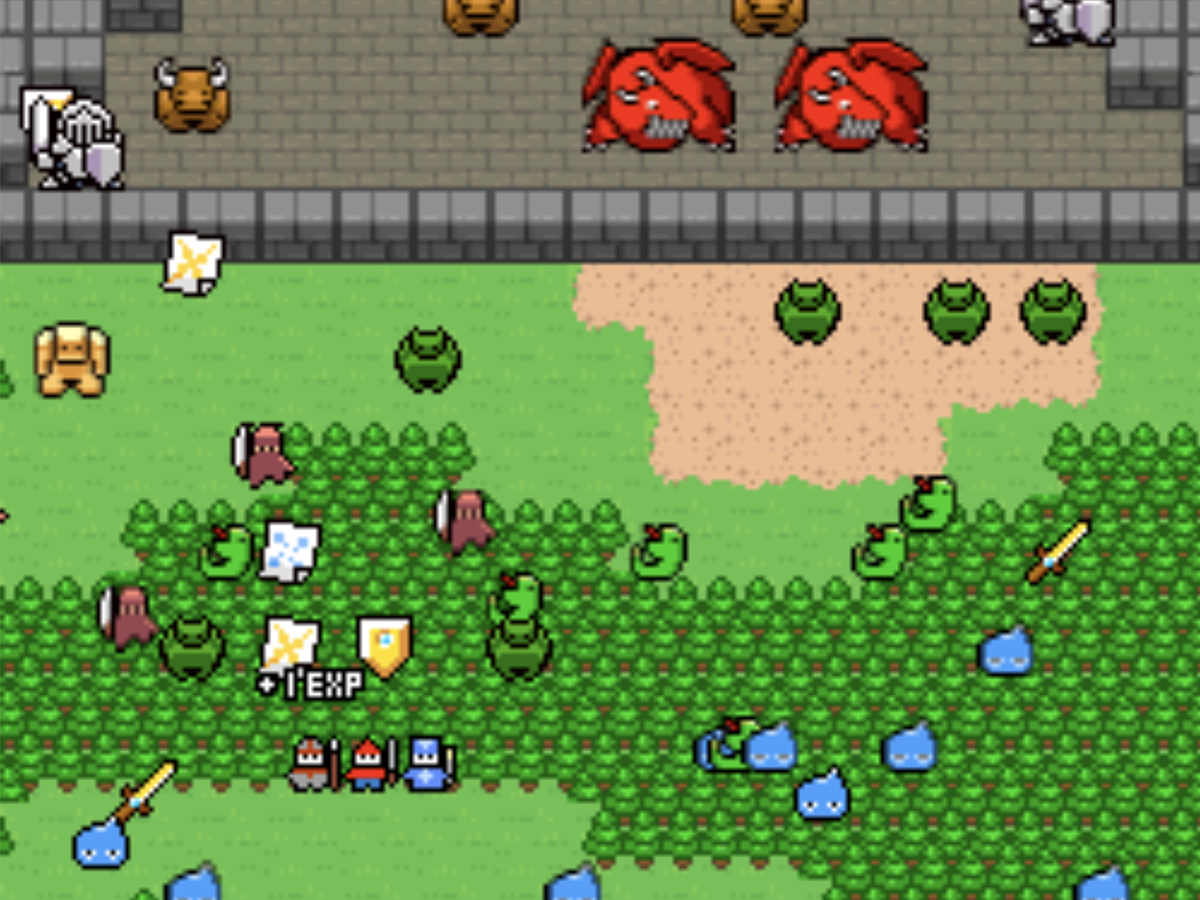
Imagine a semi-randomised retro RPG combined with rolling a rock down a hill just to see what happens. That’s One Tap Quest, which gives you a single tap/click for glory. That action has your hero set off, marching upwards to resolutely duff up enemies and snag power-ups in their path.
The trick is timing that all-important start so your stabby hero can make it through the various enemies and take on the big, bad boss with enough energy intact. It’s ridiculous yet compelling. We managed 16,600 points and were properly down the rabbit-hole on discovering via Reddit that you can hack the game’s monster count.
Online Solitaire
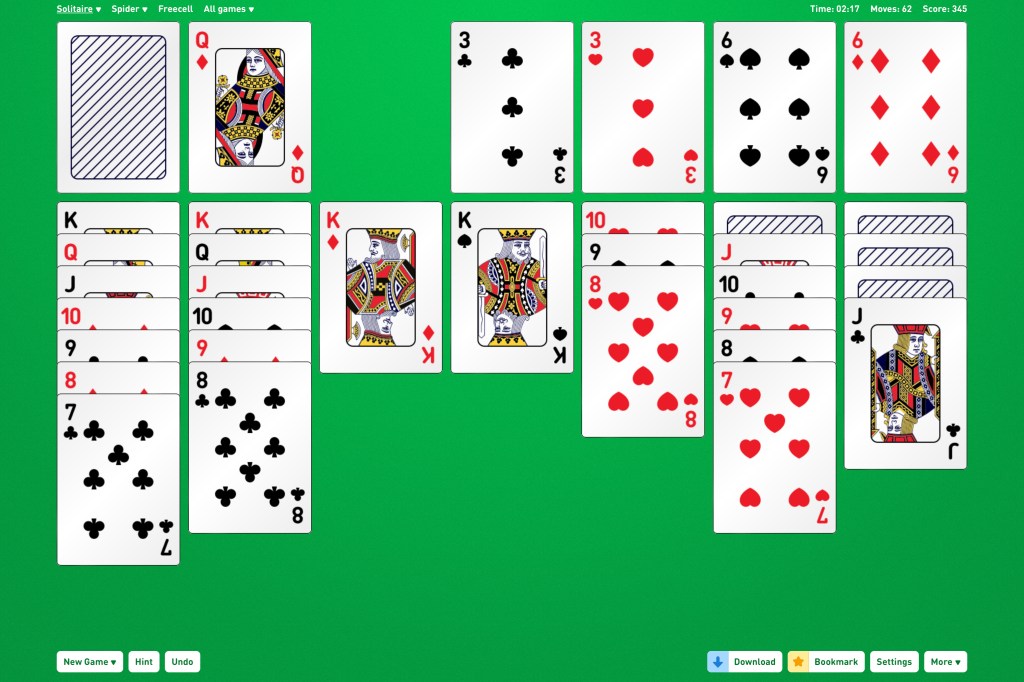
Solitaire? Really? Well, yes. Bringing order to piles of cards is deeply infused in gaming, as anyone who used to gawp at the ones bouncing around the screen after a successful round on Microsoft’s version will attest. This web take’s much better than that one though.
Alas, it lacks bouncing cards, but it does have crisp visuals, with stacks that optimise themselves for the viewport. Settings let you fiddle with autoplay and deck designs. And you get to choose between klondike, spider and freecell. Set up an account and you can even take on the entire world in daily challenges and leaderboards.
Otteretto
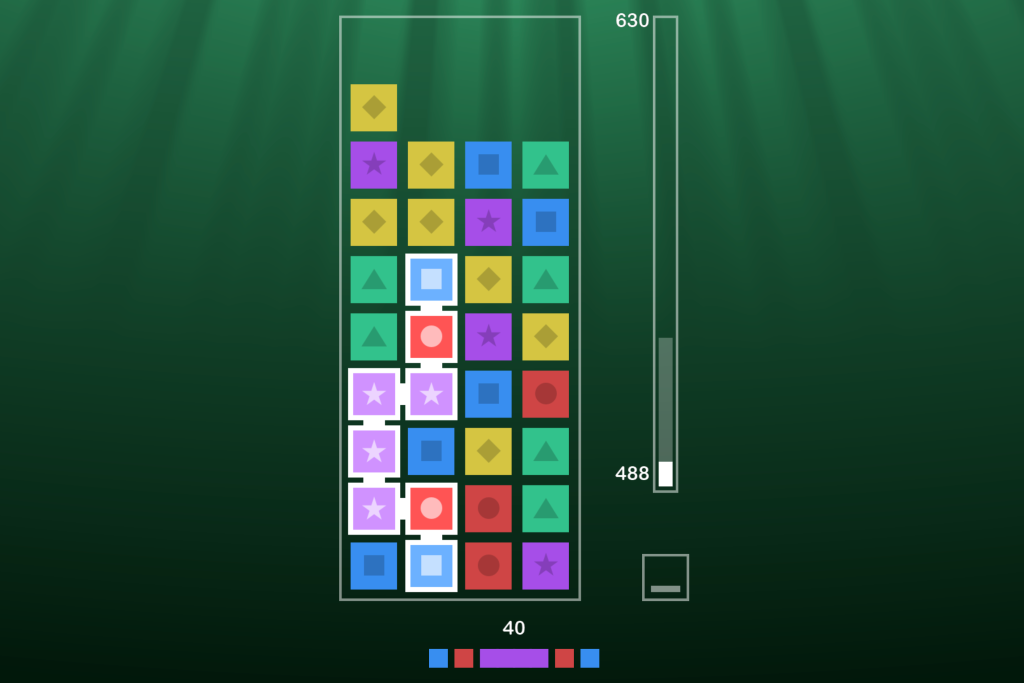
This game of palindromic sequences invites you to remove coloured squares from a well. The longer the string you create, the more points you get. Easy. Only it isn’t, because once you fill the points meter, the next level demands you get even more points using the same maximum number of blocks.
This is a smartly designed (potentially) endless puzzler that forces you to think ahead. Sequences of just a few blocks won’t cut it. As a bonus, it plays really nicely on mobile too, although fans using a PC or Mac have the added advantage of being able to splash out a few quid on a full version of the game with engaging extra modes.
Paku Paku
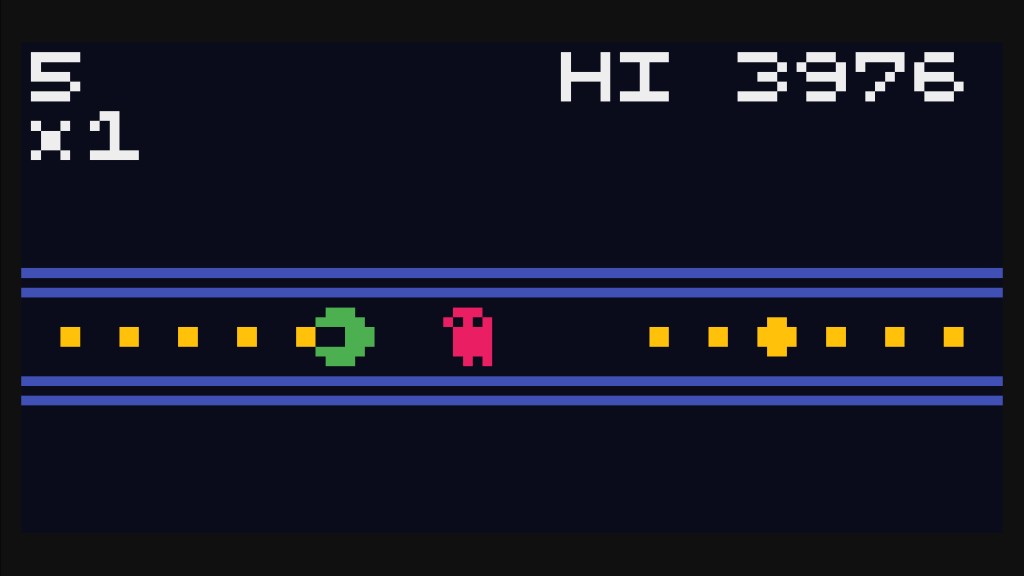
This one is Pac-Man – but simplified. Kenta Cho took the dot-munching classic and tossed out the maze and three of the ghosts. What’s left is surprisingly brilliant. You blaze back and forth along a single tube full of dots, pursued by a solitary foe. And the fast pace, score multiplier, and enemy AI (the ghost can’t use exits, but you can) transforms Paku Paku from a mere curiosity into a weirdly zen high-octane slice of arcade action.
Puzzmo

With newspapers being a dying breed, there’s a risk cultural mainstay the games page will wink out of existence. Zach Gage has spent years rethinking newspaper-style puzzles for mobile, but this collaboration with Orta Therox and Hearst Newspapers mashes them all together into a modern take on the pages that inspired his work. At least, if you get a key. To do that, you’ll need to arrive at noon ET, solve the day’s puzzle, and then set up an account. After that point, you’ll have a daily dose of Typeshift, Flipart, SpellTower, Really Bad Chess, and more.
Quick, Draw
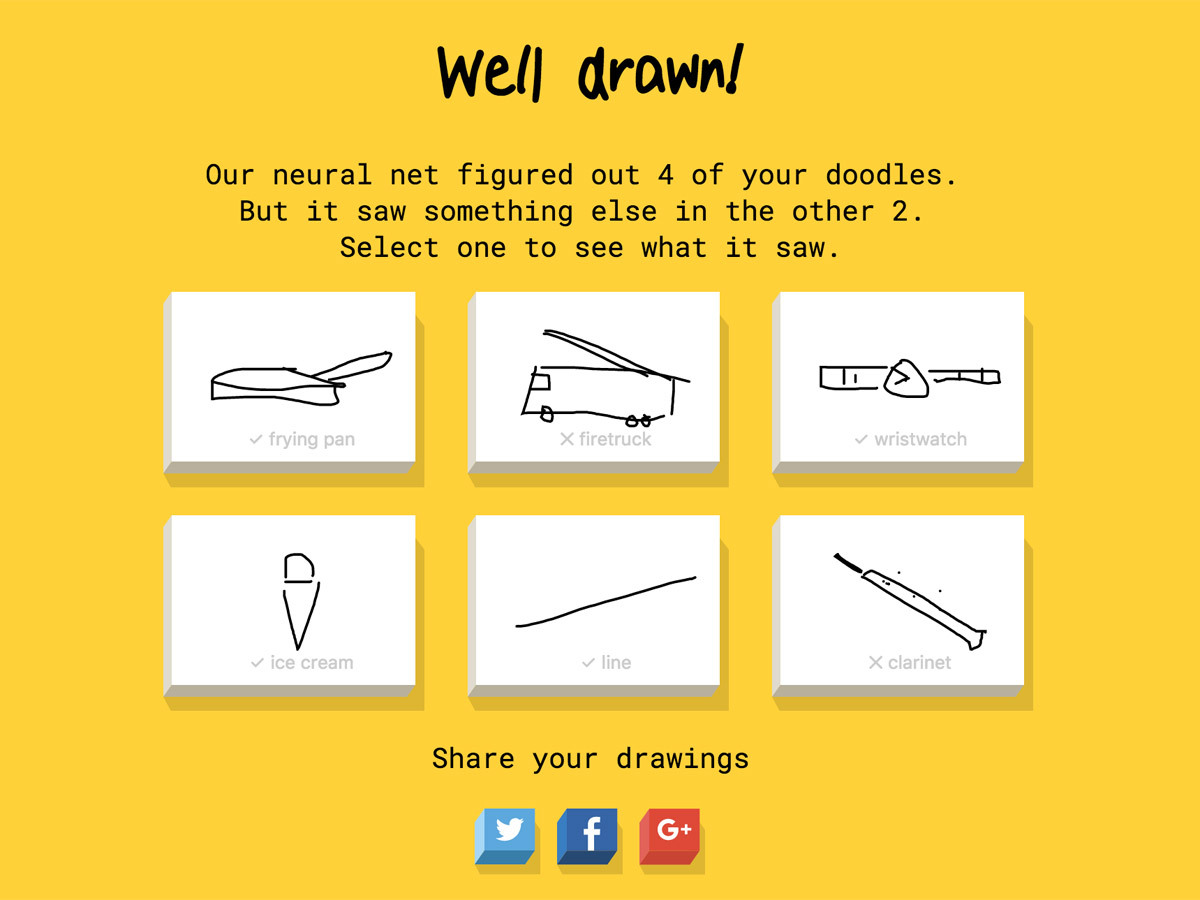
Fancy yourself something of an artist? Put your sketching skills to the test in this devilish AI-based take on Pictionary, in which you’re tasked to draw everyday objects (‘fire engine’, ‘clarinet’, ‘frying pan’, and so on) and have them recognised by Google’s deep learning-based judge. If your crude scrawling hits the mark, you get to draw another one, again and again, until you fail.
Ramps
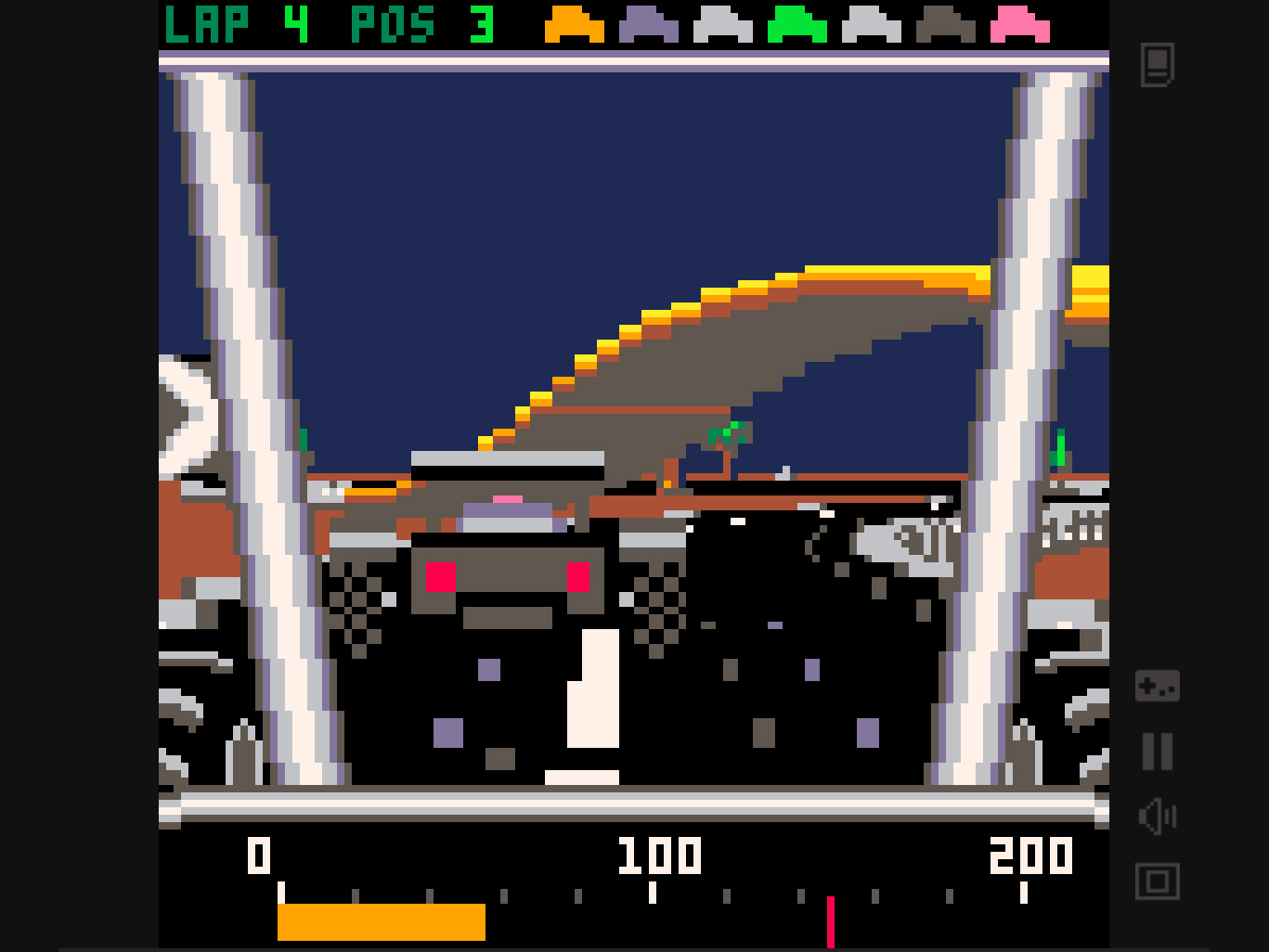
Another ambitious Pico-8 game, Ramps comes across like Power Drift and Stunt Car Racer had a baby. You strap yourself into a chunky kart and blaze along five stomach-churning tracks that have more in common with rollercoasters than traditional racing fare. It’s exhilarating stuff. You soon find yourself ignoring the chunky retro-style graphics and yelling as an aggressive computer player barges you off of the track, costing you precious seconds and your chance of taking the chequered flag.
Salvagette
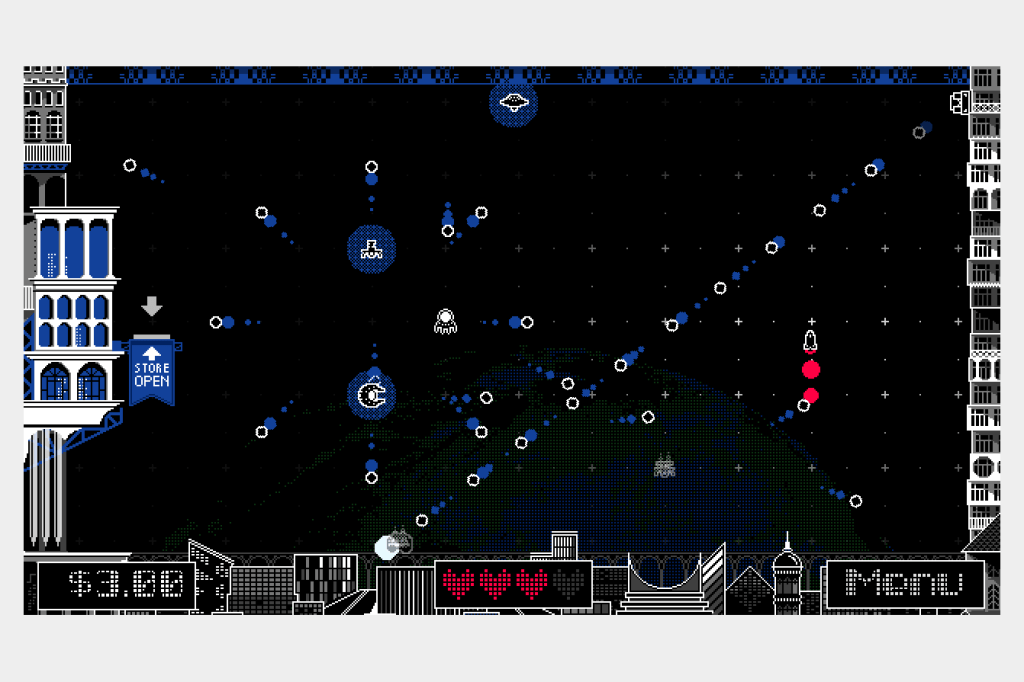
Think bullet-hell shooters would be easier if only you could pause the screen at will? Nope. As Salvagette proves, you just end up with extra time to prepare for your inevitable demise. Although that’s in part because whoever shoved you into the game’s tiny and hostile single-screen arena didn’t think to arm your ship.
Your lot, then, is to ram the opposition into oblivion. Blue orbs helpfully provide warning regarding when each enemy will blast a projectile your way, and you must plot a path that won’t rob you of your four lives. A shop and multiple endings add further depth, and you can also check out predecessor Salvage, to see where it all began.
Scrambird
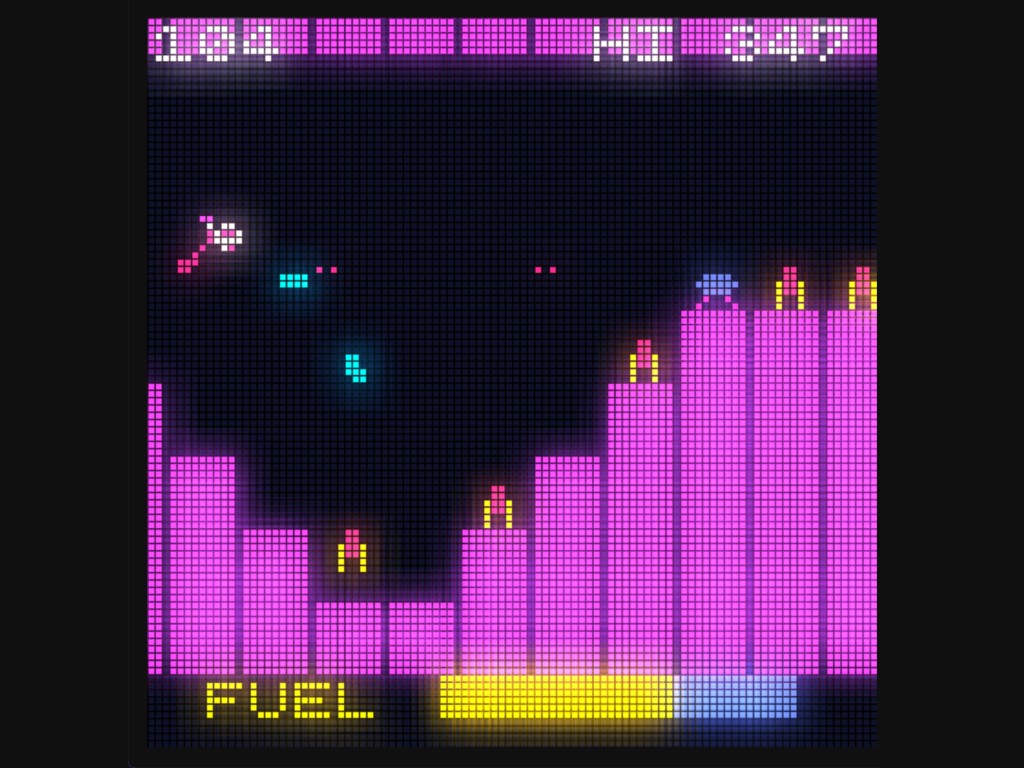
This vicious mash-up of classic arcade cab Scramble and mobile title Flappy Bird pits you against an endless neon landscape of launching rockets and fuel banks you obliterate to top up your dwindling supplies. It’s a one-thumber: each tap releases a bomb, blasts a missile and increases your altitude.
Staying alive is like juggling – miss a rocket and you’re dead. Tap too many times and you smash against the ceiling. It’s infuriating and brilliant. Do also check out creator Kenta Cho’s many other titles, including claustrophobic spinning platformer R Wheel, frenetic avoid ’em up Thunder, and Pillars 3D – a lightning fast 3D survival hopper as reimagined on a ZX81.
Shall We Golf?
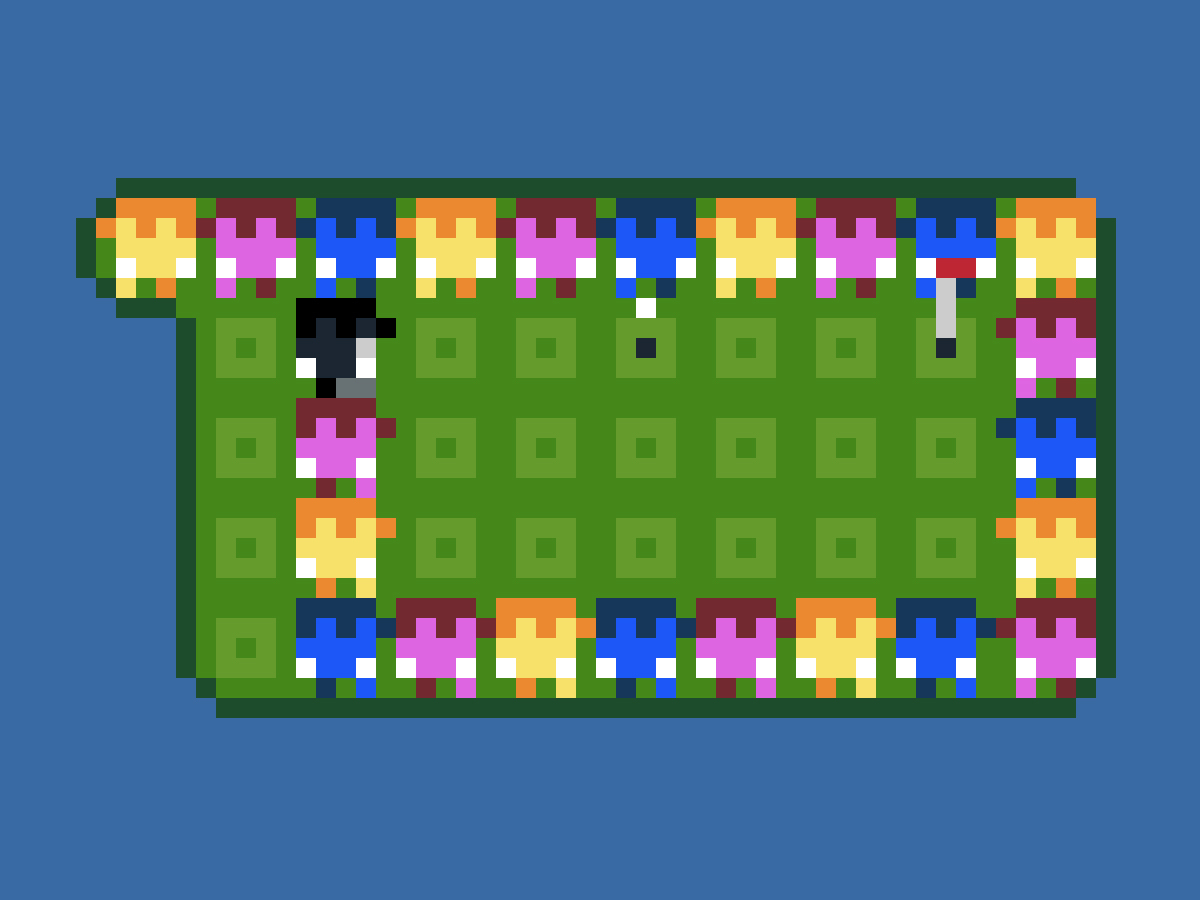
Unusually for an online mini golf game, the twist in Shall We Golf? isn’t oddball courses. In fact, they’re dull, boxy, 2D affairs. This game’s freshness – and much of its challenge – instead stems from it drawing heavily from Snake. Rather than move one golfer around the course, you have a string of players, any one of which can be passed the club. Success depends on manoeuvring your golfing conga to create a pathway to the hole, golfers becoming barriers when whoever has the club whacks the ball their way.
Spelunky
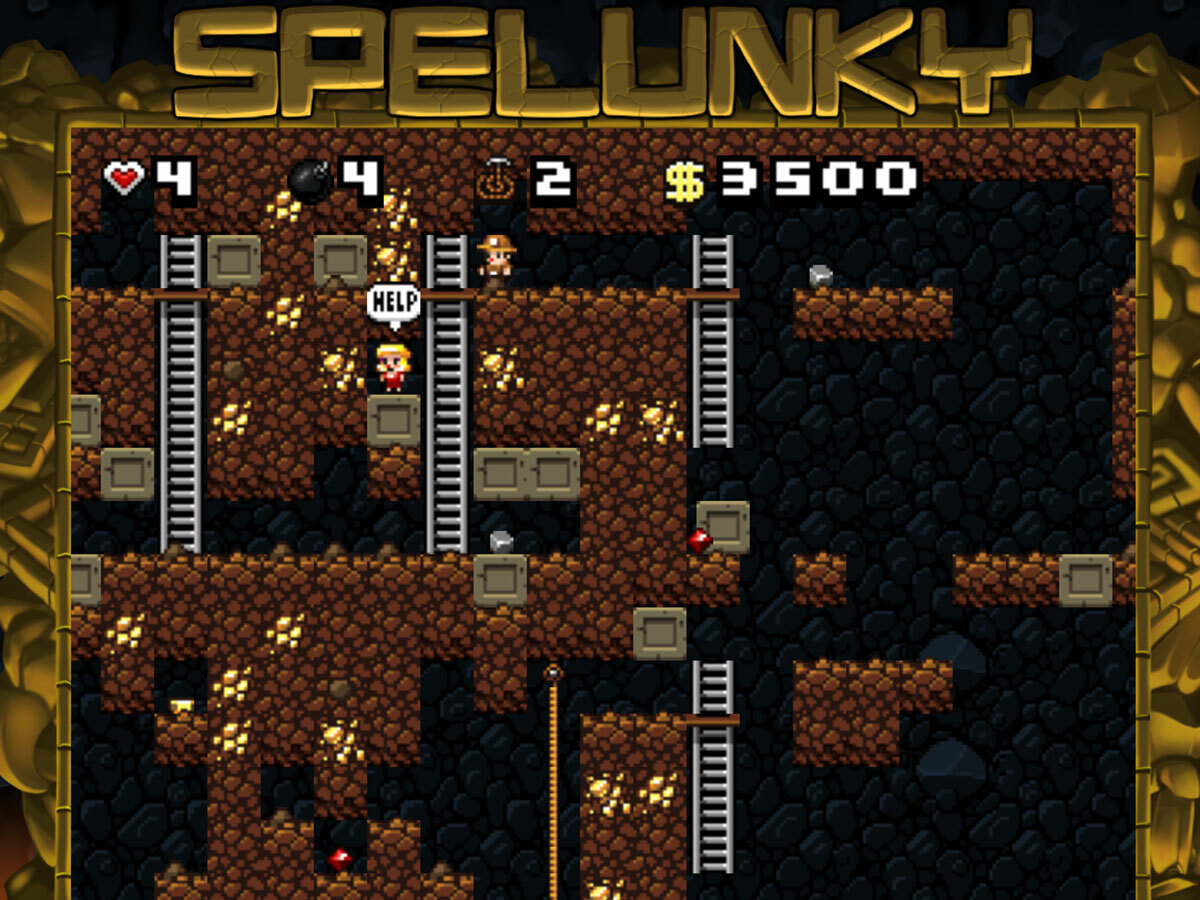
Originally a tasty slice of PC freeware, Spelunky then became a darling of the PS Vita indie scene. It’s easy to see why: the mix of traps, monsters, route-finding and secrets, and fast-paced classic platforming action across randomly generated maps, is intoxicating stuff.
The original was in 2012 reworked for the browser, and remains superb fun – although you might disagree when your cute little adventurer is suddenly shot out of the air with a poison dart or clubbed to death by an irate caveman.
Tetr.io
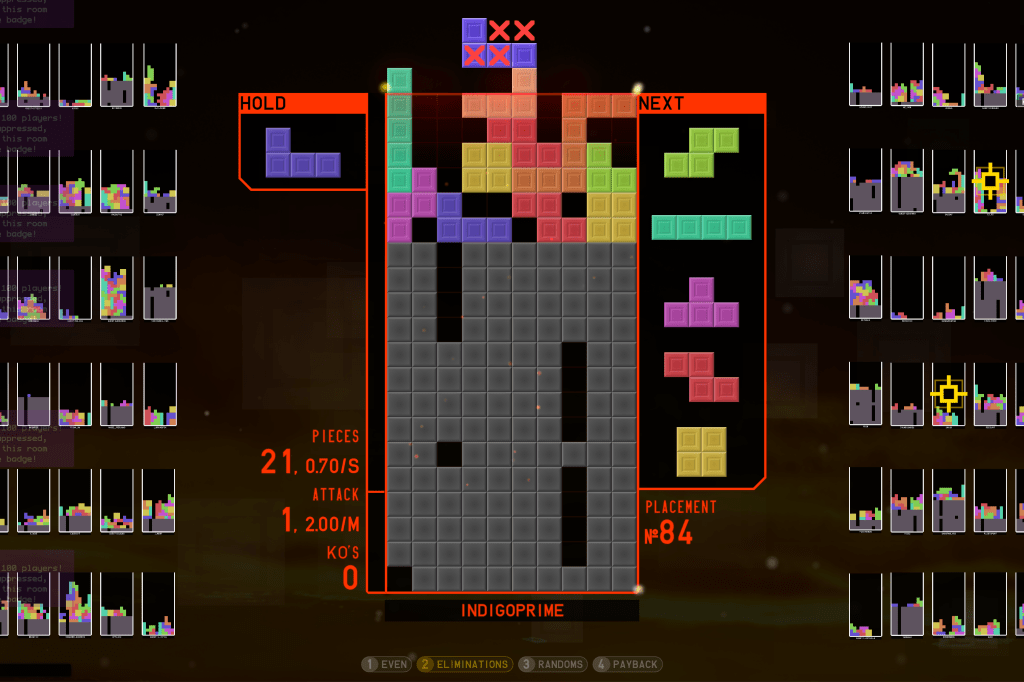
Fancy a relaxing game of Tetris? You won’t get it here, because Tetr.io is all about block-stacking at speed. You start off ‘training’ in solo modes, which have you race to 40 lines or get a high-score against the clock. It’s frantic stuff.
Eventually, you’ll dip into the multiplayer modes – and rapidly discover how insanely good Tetris players can be. Make the top 20 in the main game and you’ve nippier digits than Stuff. Fortunately, there are also less manic custom rooms and 1v1 bouts to play until you’re ready to take on the best in the world.
Tetris
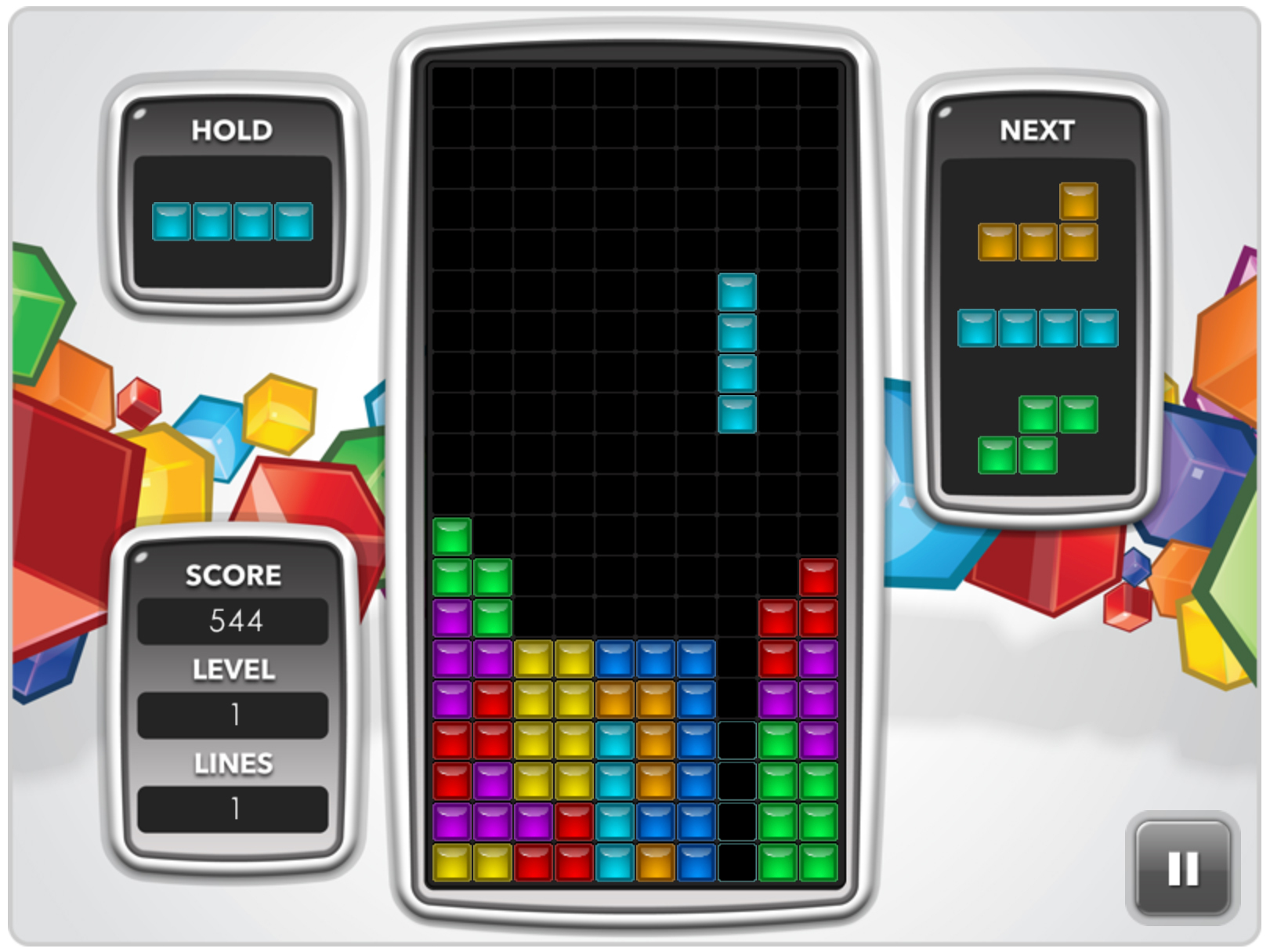
Alexey Pajitnov struck gaming gold on creating Tetris. Decades later, its mix of shape sorting and tense endless action remains intoxicating – at least when publishers don’t ruin it with in-app purchases.
Fortunately, this online version is a straightforward affair: rotate shapes; make complete lines; continue until the well fills; realise you’ve spent 14 hours straight playing Tetris.
Fancy something Tetris-ish, but a bit different? The multiplayer Tetr.io is elsewhere in this list. But also check out Tetris Gems, where you use blocks to dig into dirt against the clock, and this adorable approximation of the original Electronika 60 Tetris.
The night spoke our names
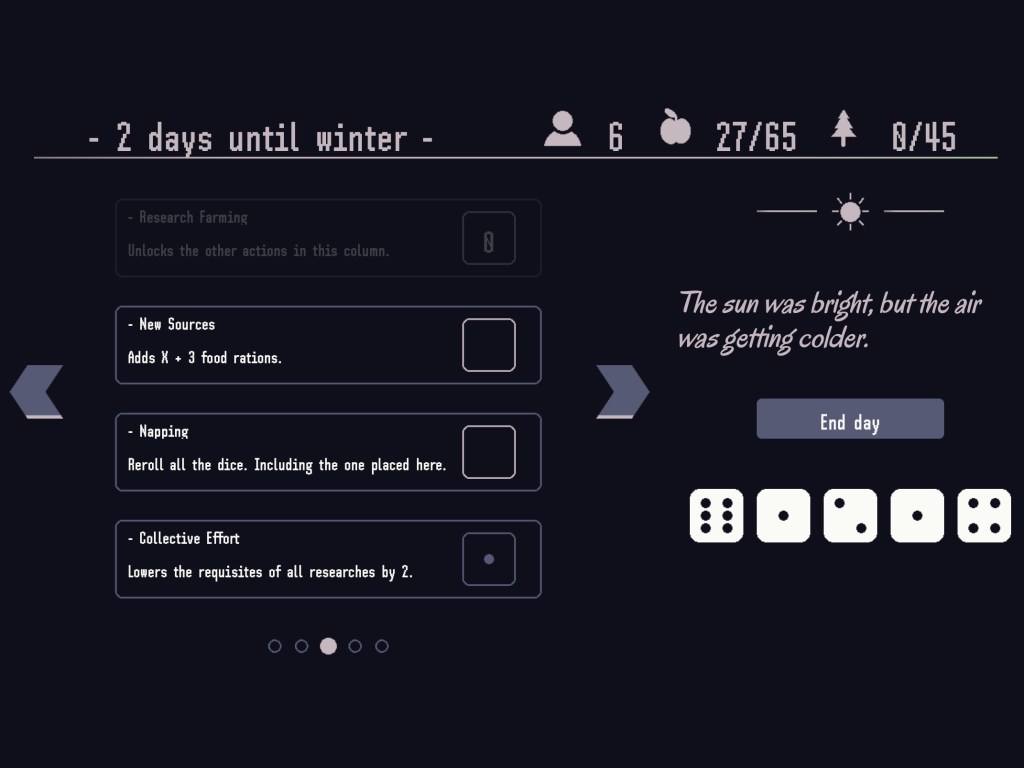
Resource management meets Yahtzee (sort of) in this weirdly tense game. The aim is to secure enough food and wood to get through a looming and deadly winter’s night that’s a mere week away. Each day, you roll dice and assign them to actions, such as enlarging your party or learning new skills.
The key is in understanding how actions are linked. Learn communications and you can duplicate a dice. Other abilities make it easier to learn new skills or massively ramp up how much wood you can secure from a single roll. Chances are you’ll get tantalisingly close to victory after a few goes – but if you’re even a single apple short at the end of the week, the winter will claim you in horrifying fashion.
Play The night spoke our names
The Password Game
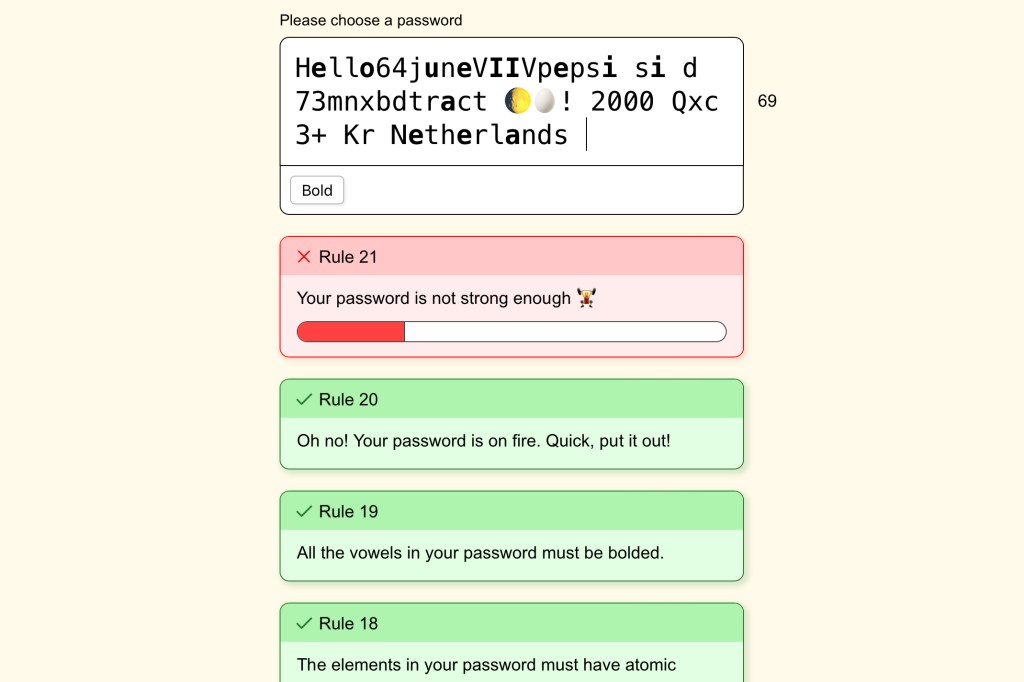
This game is psychotic. It starts off like an amusing satire on password creation, demanding your password be at least five characters long, and include a number, an uppercase letter and a special character. And then it all goes bonkers. Before long, you’re battling algebraic chess notation, grappling with atomic numbers, figuring out where in the world a photo was taken, keeping alive a chicken that clearly doesn’t want to be alive, and – in one memorable moment – frantically trying to rescue your hard work when your password catches fire. Brilliant, but infuriating stuff. Never again will you grumble when a website serves up stupid password rules when you’re securing an account.
The Wiki Game

You know all that time you spend blindly clicking links on Wikipedia? Put that to good use in this Wiki-based speedrunner. Playing against online opponents, you’re given start and end pages and have to get between the two.
Should you complete your task before the timer’s up, you gain bonus points and jump up the high-score table by finding alternate routes. And, hey, you can even convince yourself that all this Wiki faffing is in fact work – training for your next research session. Probably.
Threes!
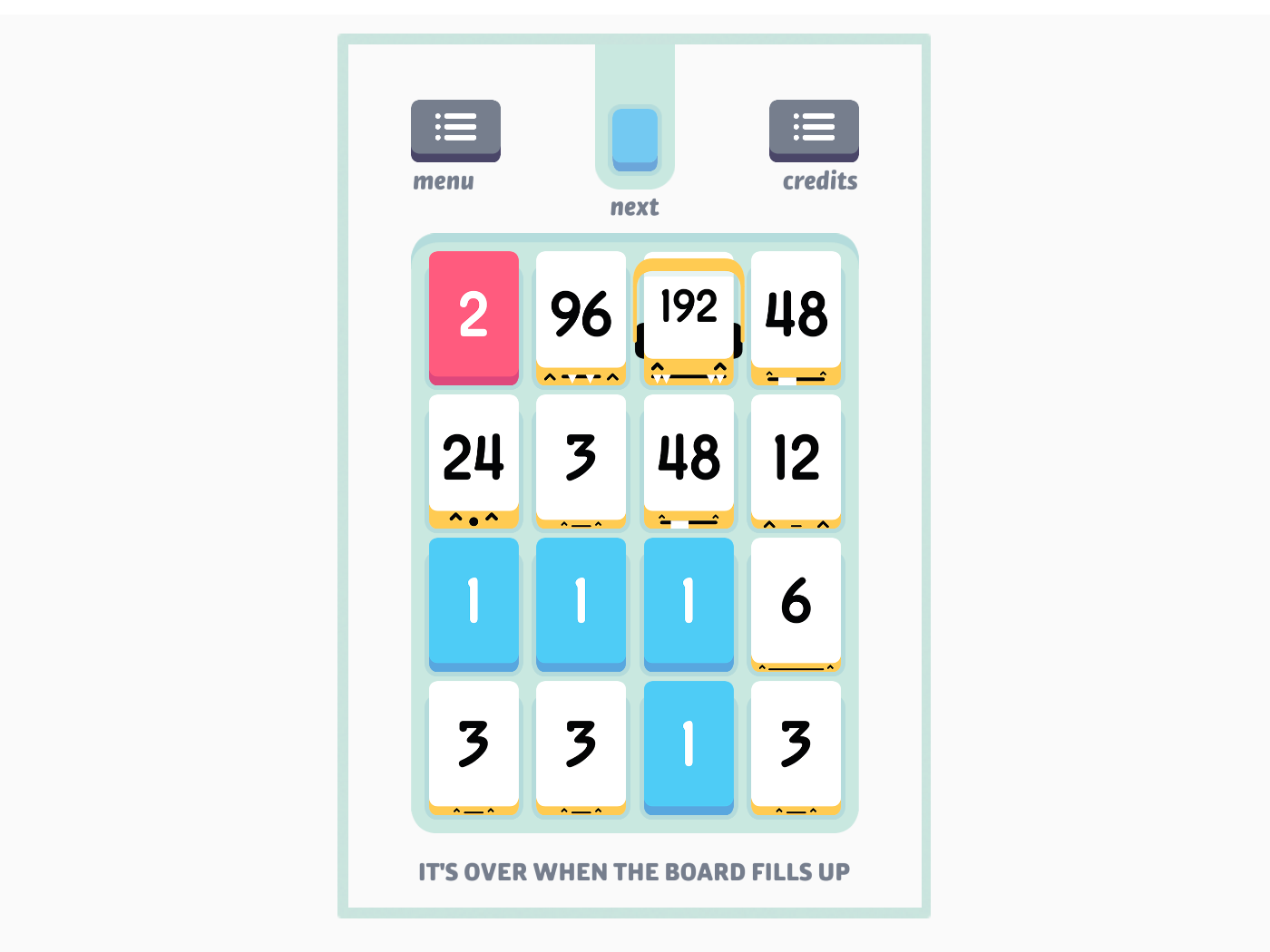
For many, Threes! is mobile’s Tetris – a ridiculously compulsive and replayable puzzler ideally suited to smartphones, and that ravenously devours your time. And it’s available online, too, so thanks for that, developers. Does our productivity mean nothing to you? (Probably not.)
The game has you swipe numbered tiles around a four-by-four grid, merging pairs to increase their numbers. You might say that sounds an awful lot like 2048, but 2048 is in fact a rubbish clone of Threes!, so stick with the original, and blissfully ignore all those deadlines whizzing past your ears.
Townscaper
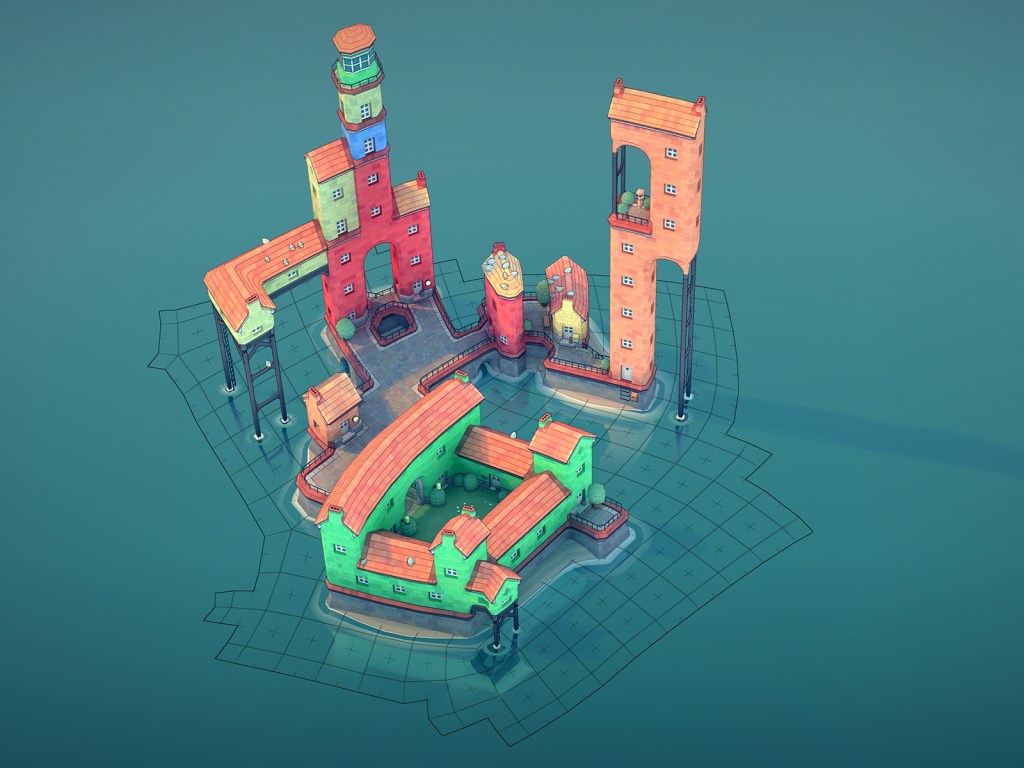
There’s no scoring in Townscaper, nor any objective but to explore. And the game’s all the better for it, providing a meditative, thoughtful experience as you plop foundations into an endless ocean and start to build.
Much of the joy in Townscaper is in figuring out its rules. How do you create a lighthouse? What nets you a garden rather than concrete? Note that mobile support is limited as is the space on which to build – so if you like this but want more, buy the full version.
Wave Run
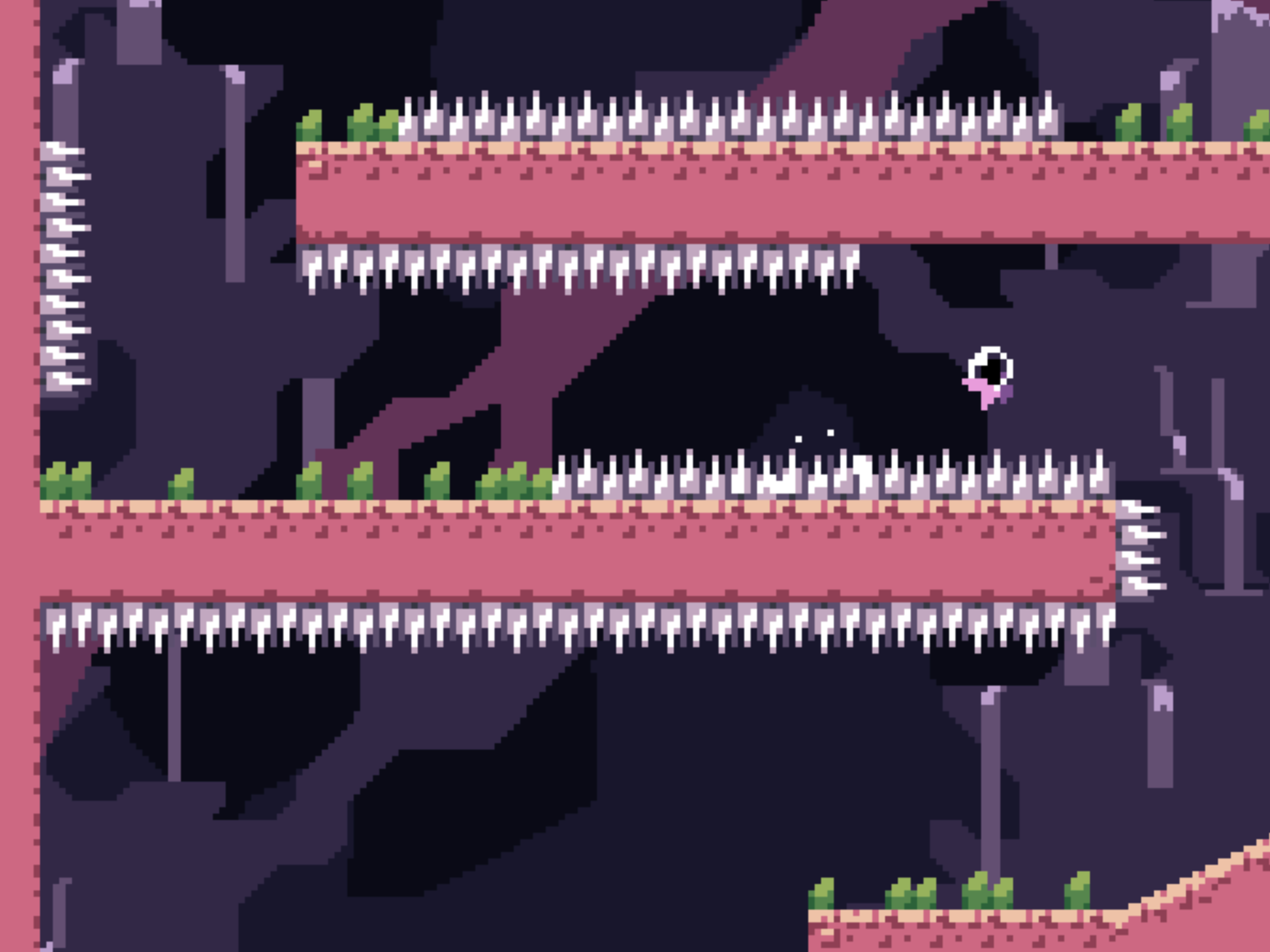
This fast-paced platformer is a smart time-attack challenge that has you sprint and fly through 33 levels, grabbing as many trophies as you can along the way.
The gameplay might seem a touch familiar, but everything here is top-notch: chunky retro graphics; jaunty soundtrack; responsive controls and well-judged physics when jetpacking through the air; and tight level design that forces you to pay attention if you don’t want to keep getting impaled on spikes.
Well Word
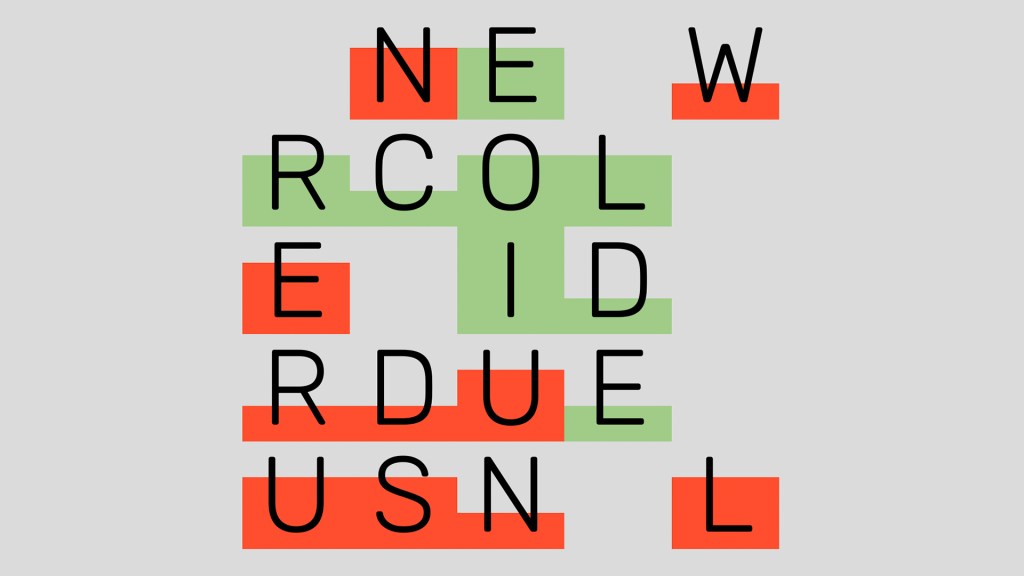
Even if you think you’ve had your fill of daily word games, leave some time for Well Word. As ever, the aim is a high score, using the selection of letters provided to fashion words. The twist here is that each letter can only be used three times – with the exception of the central one, which can be used as often as you like. The game becomes a balancing act, with you perhaps holding back on longer, fancier words because you know come the close of the game you’ll need a handful of useful letters to secure empty row and column bonus scores.
Wizard of Wor
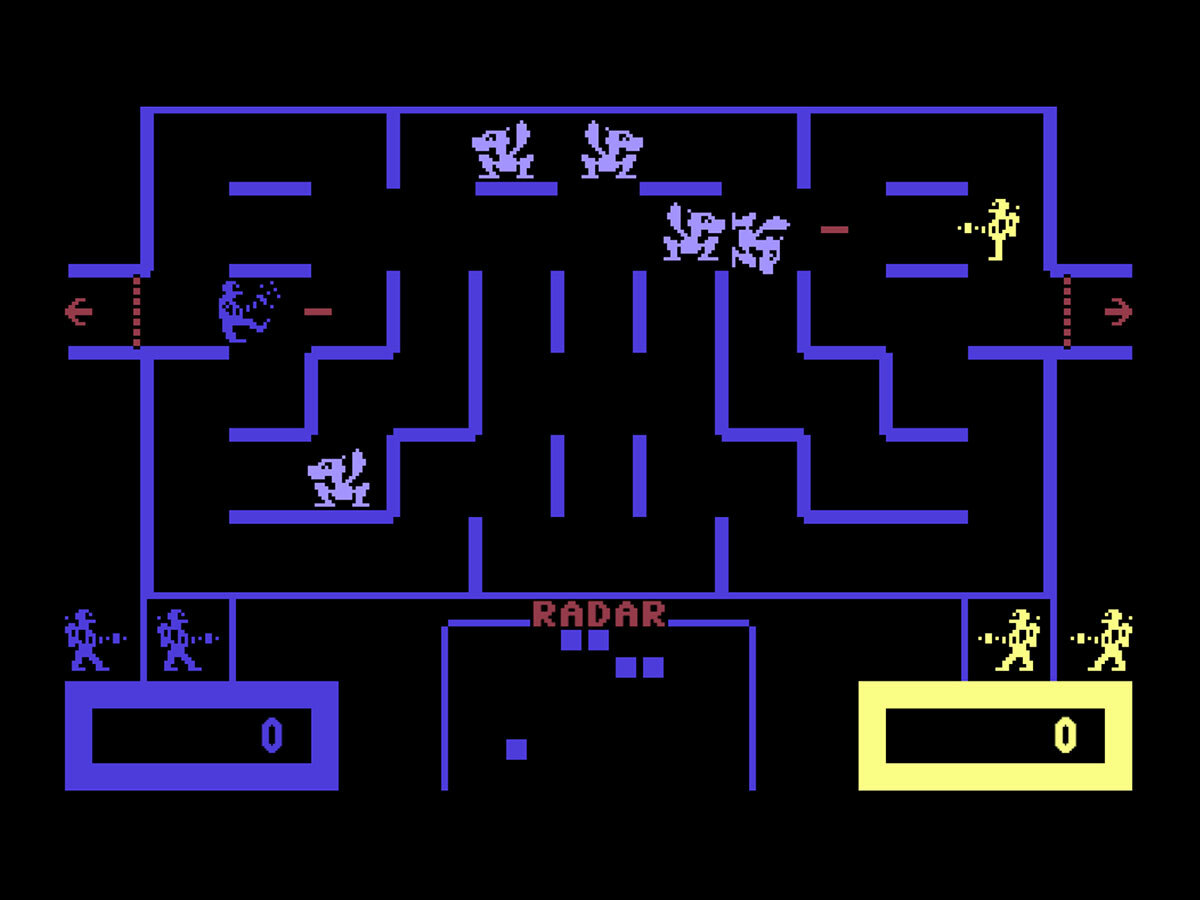
Wizard Of Wor appears to be a browser-based remake of a C64 conversion of an ancient arcade game! Which is a bit weird. It’s a fantastic old-school title, though, where you roam claustrophobic mazes and blast monsters before they tear your face off. Best of all, there’s a simultaneous two-player mode. Hit Shift and player one (blue) can use AWSD and Shift, while player two (yellow) uses the cursors and Enter. Given that you can ‘accidentally’ shoot each other, too, either of you can then use the entire keyboard to smack your opponent with.
Note: use Firefox for this one.
Wordle
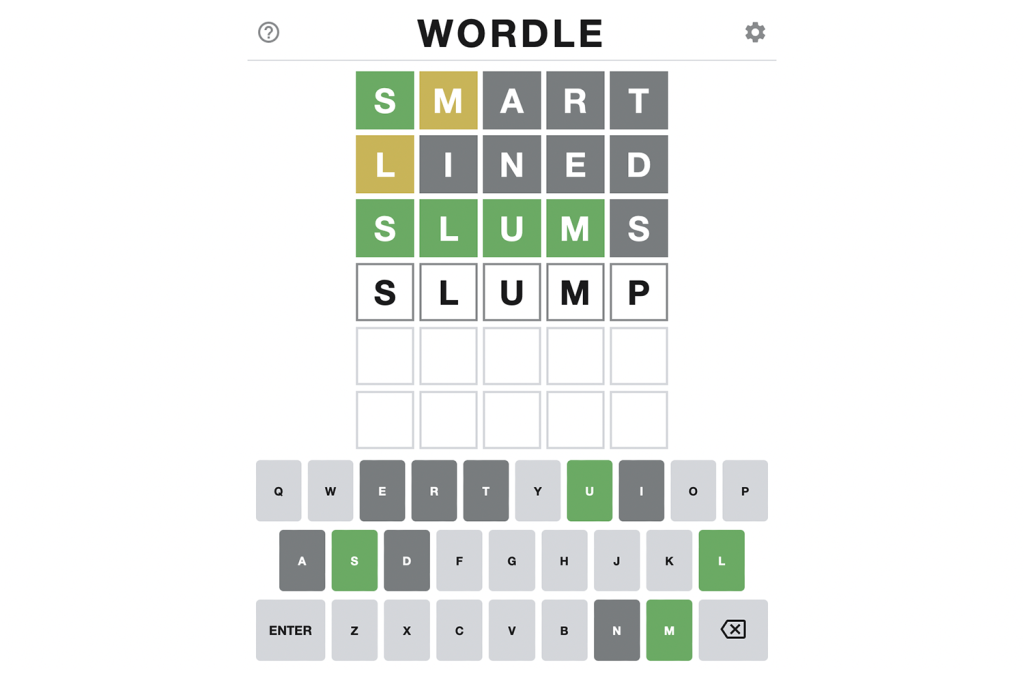
The best word games are the simplest ones, and Wordle is certainly simple. Essentially anagrams mashed into Mastermind, it’s a code-breaking logic game where you guess a five-letter word of the day across a maximum of six rounds.
During each round, letters are coloured in. Grey ones aren’t in the word. Yellow ones are, but in a different place. And green means you’ve nailed letter and placement alike. Succeed and you can share a grid of coloured squares on Twitter, thereby baffling everyone who hasn’t played the game before. Bonus!
World’s Biggest Pac-Man
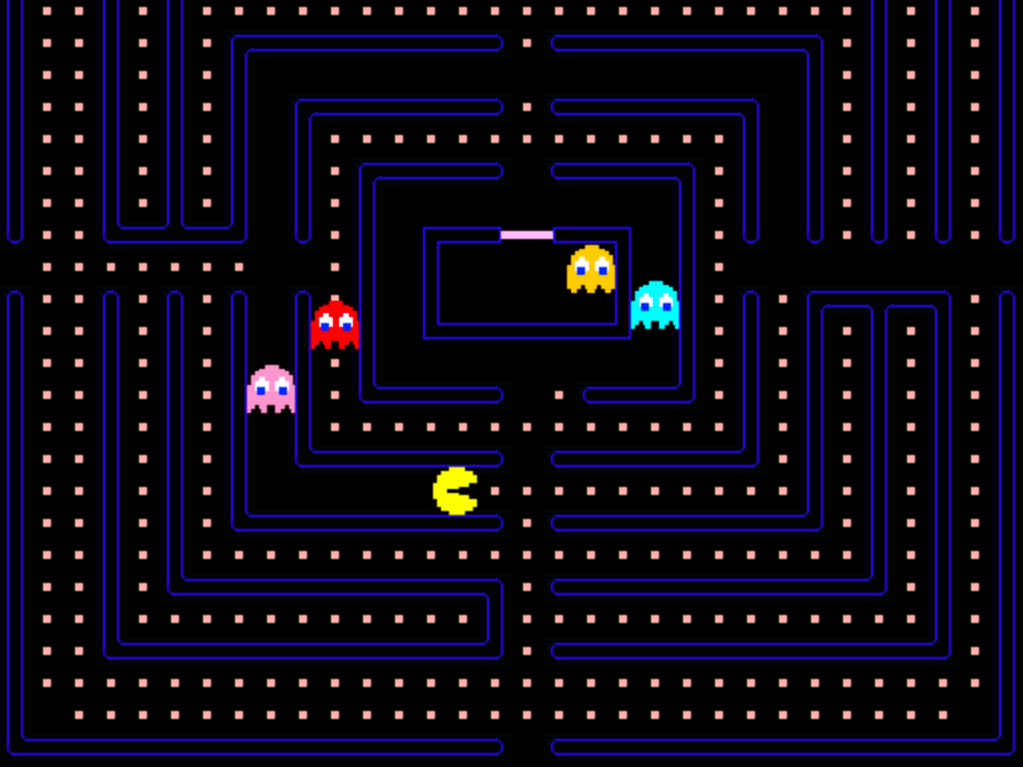
Built to promote the original Pac-Man’s 30th anniversary (they grow up so fast!), World’s Biggest Pac-Man makes two major changes to the original title. First, the two wraparound tunnels are replaced by four doorways, one at each screen edge, enabling you to escape to another maze. Secondly, the creators enabled anyone to submit mazes. Within a week, there were over 10,000. Now there are hundreds of thousands – enough to last even the most ardent dot-muncher several lifetimes.
